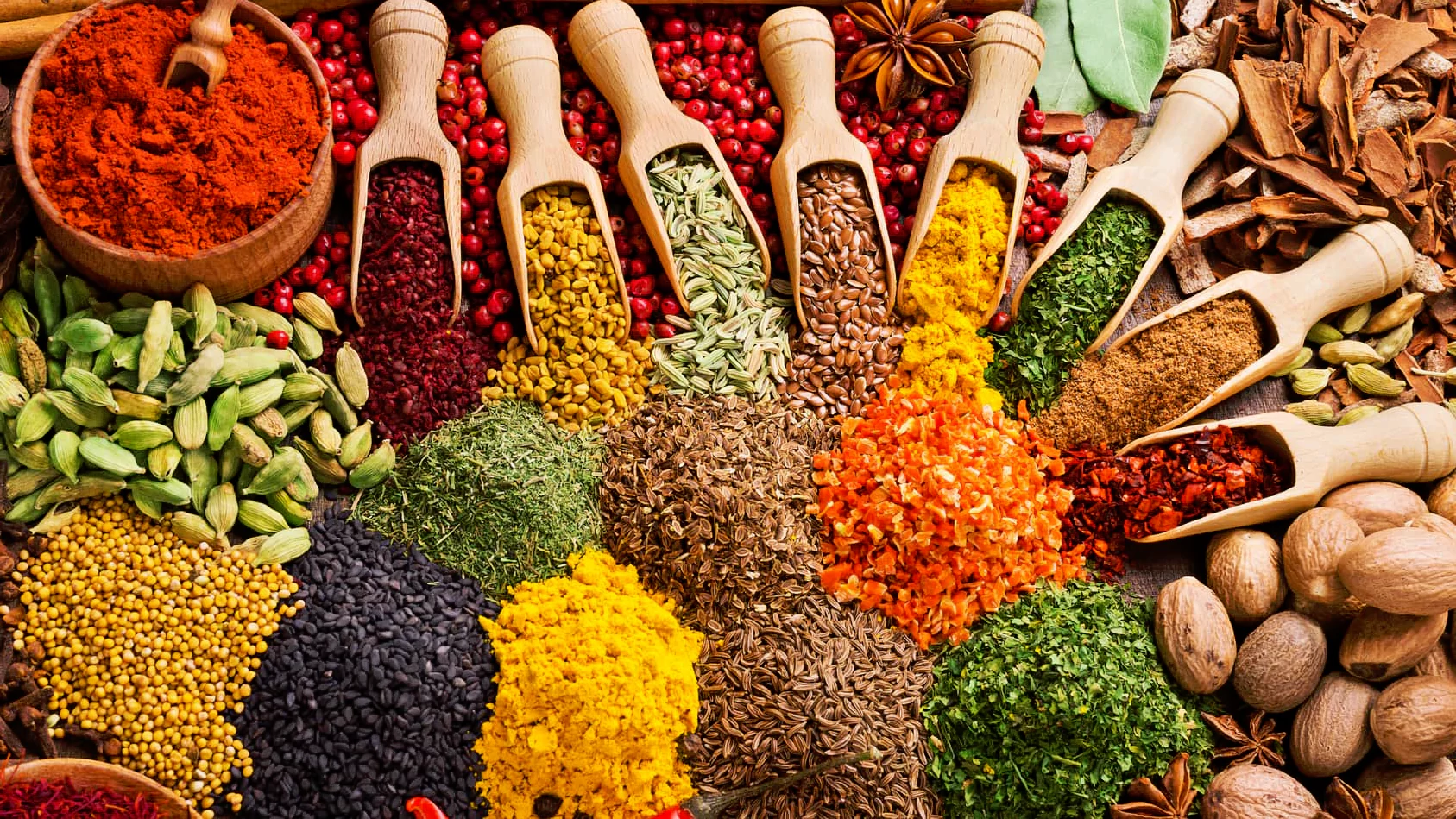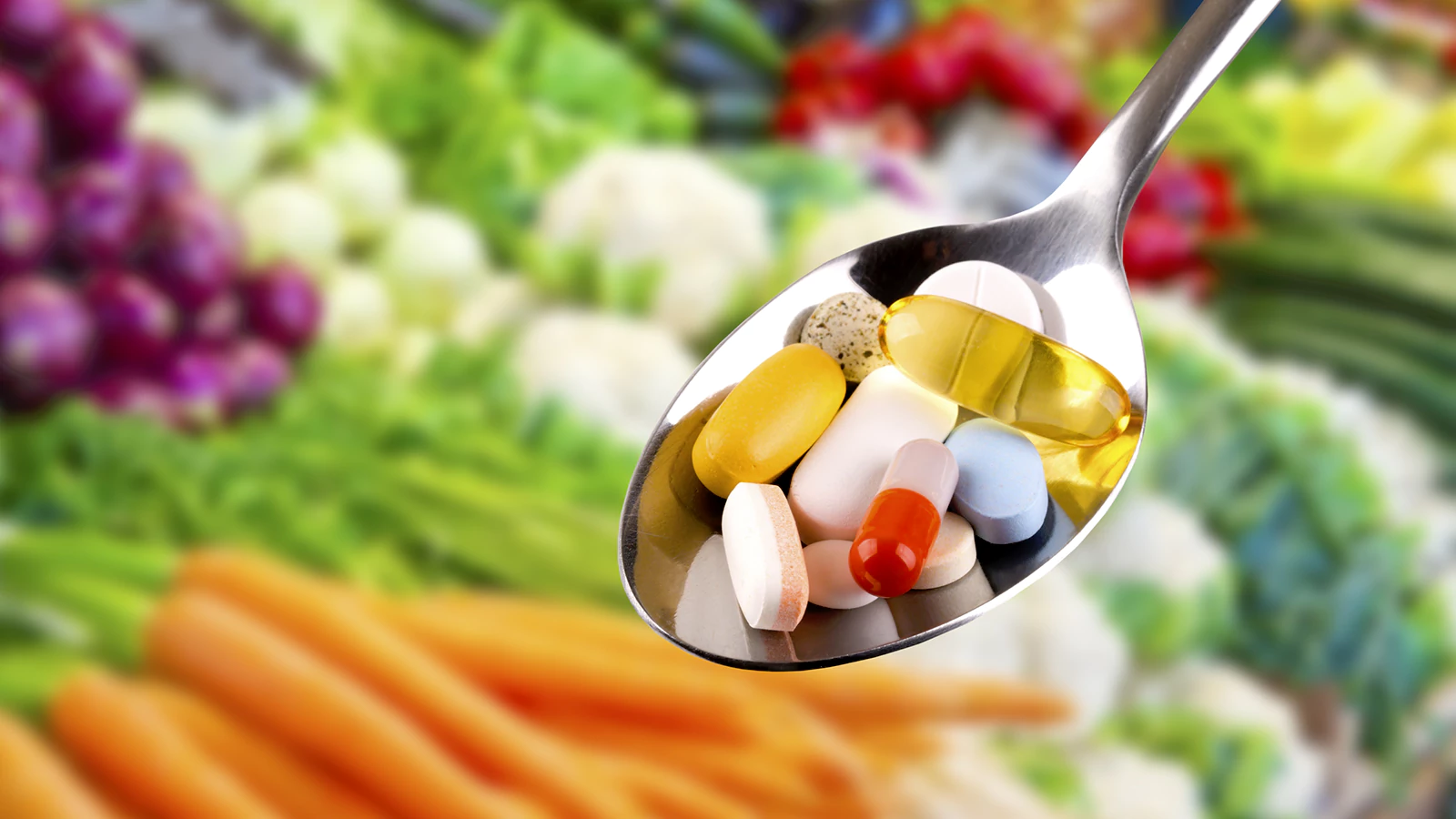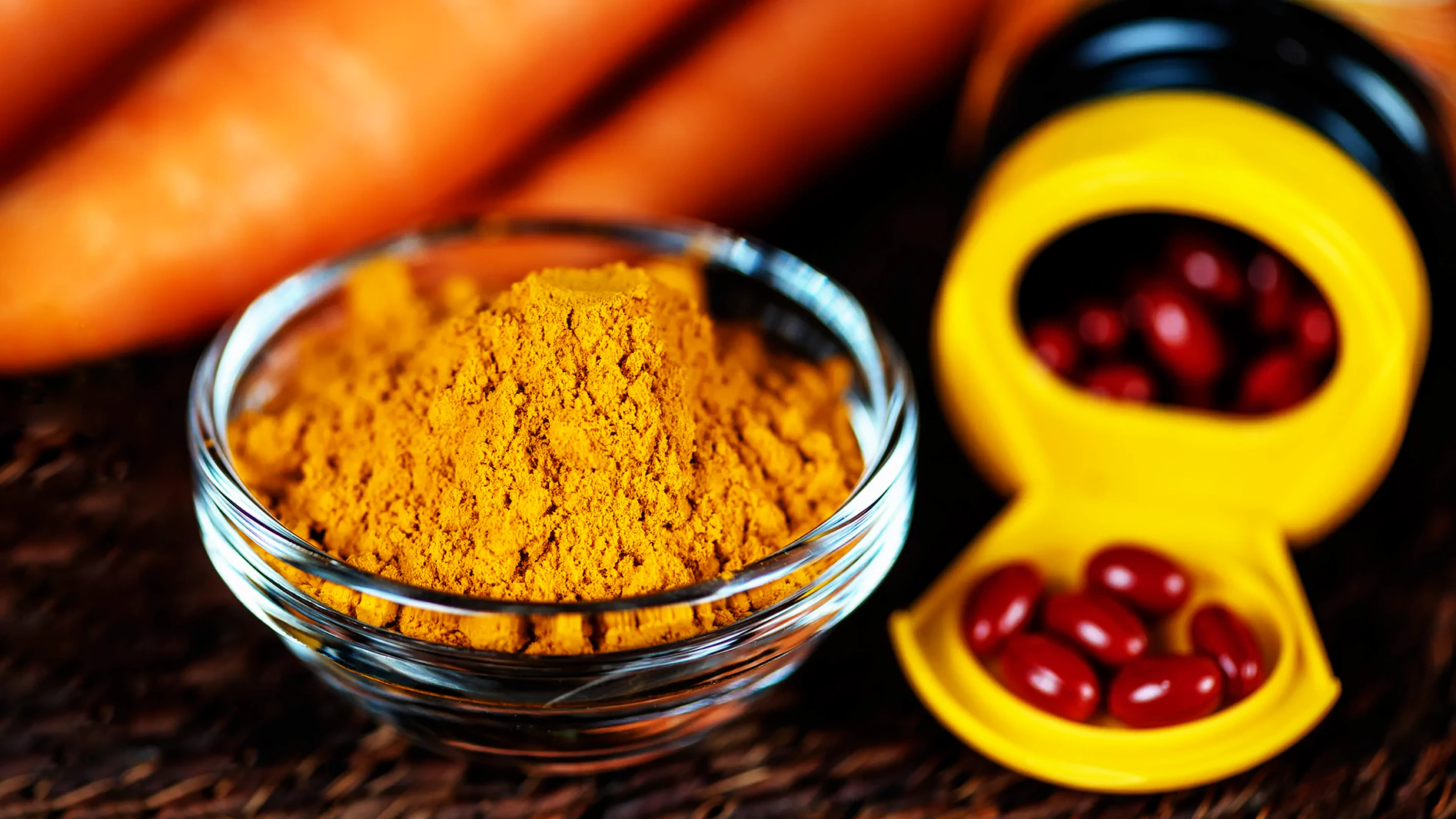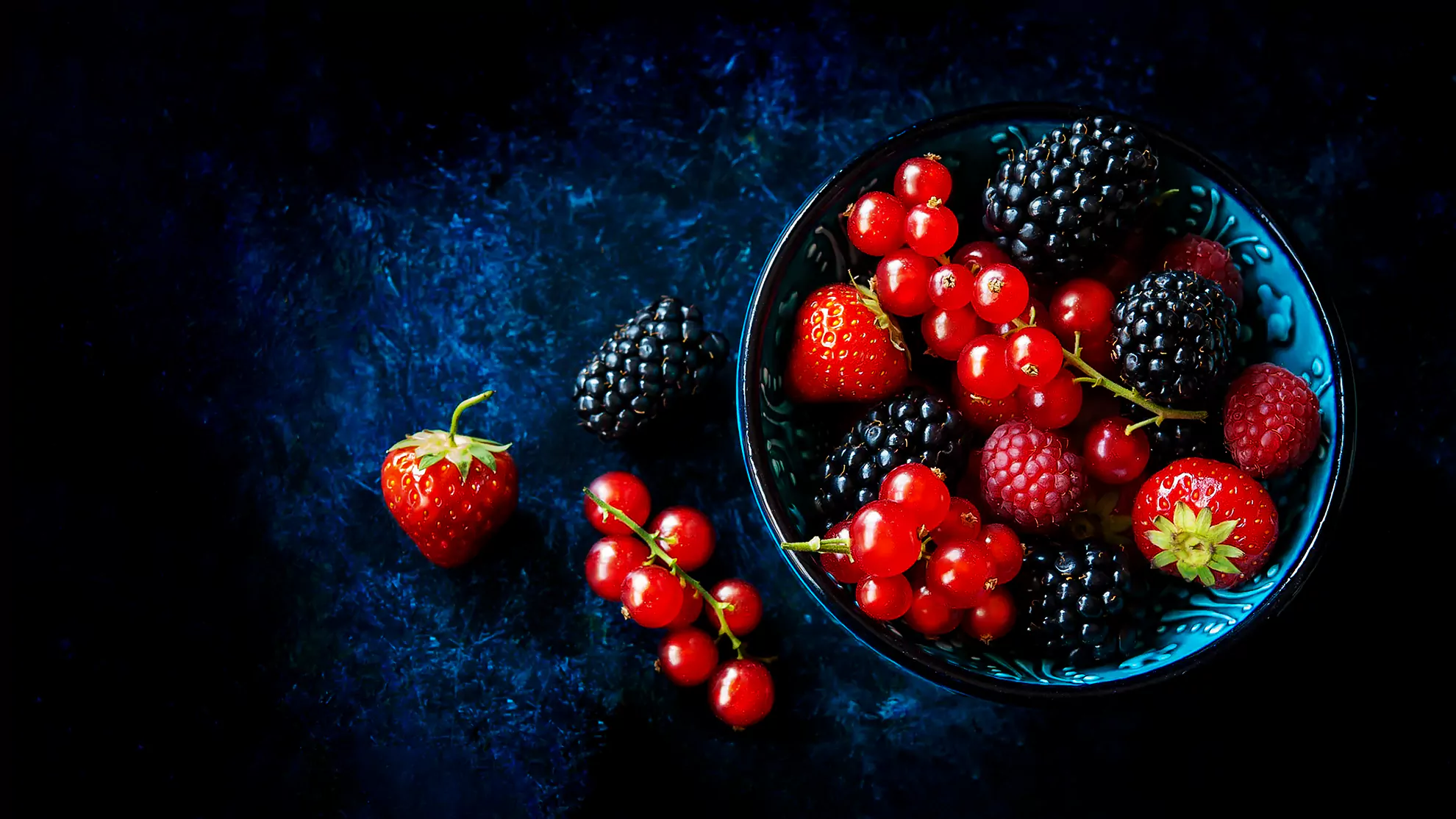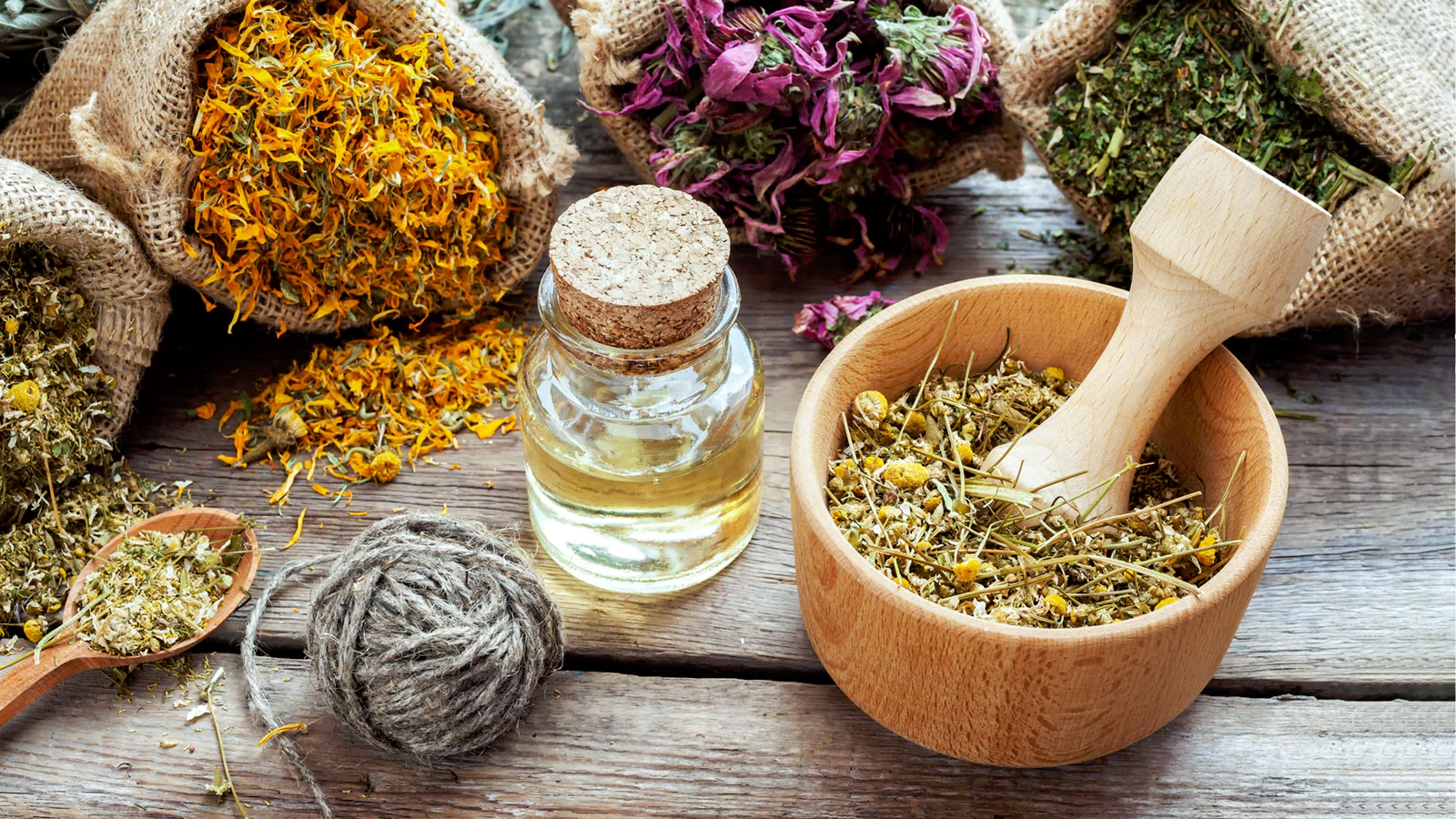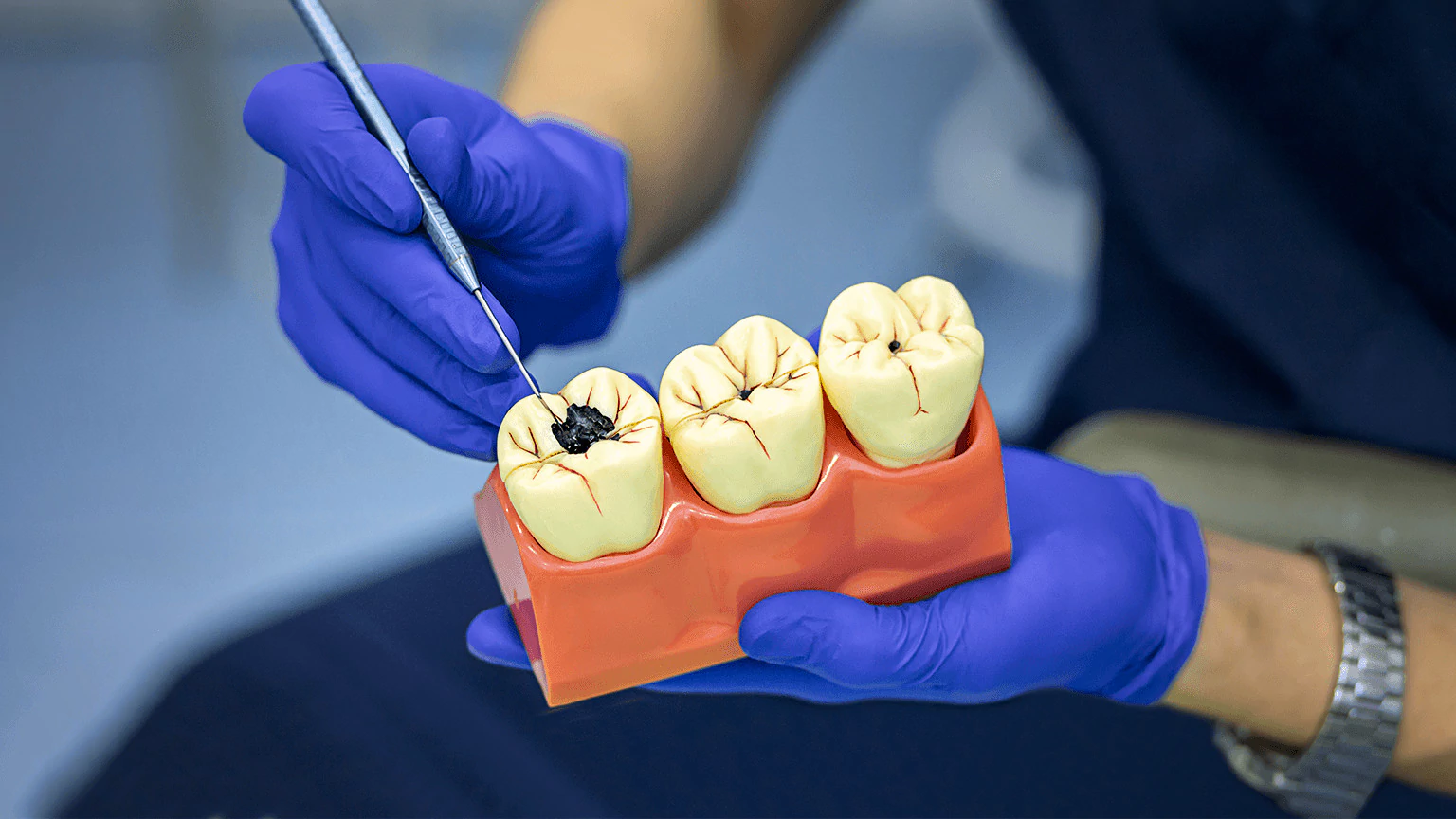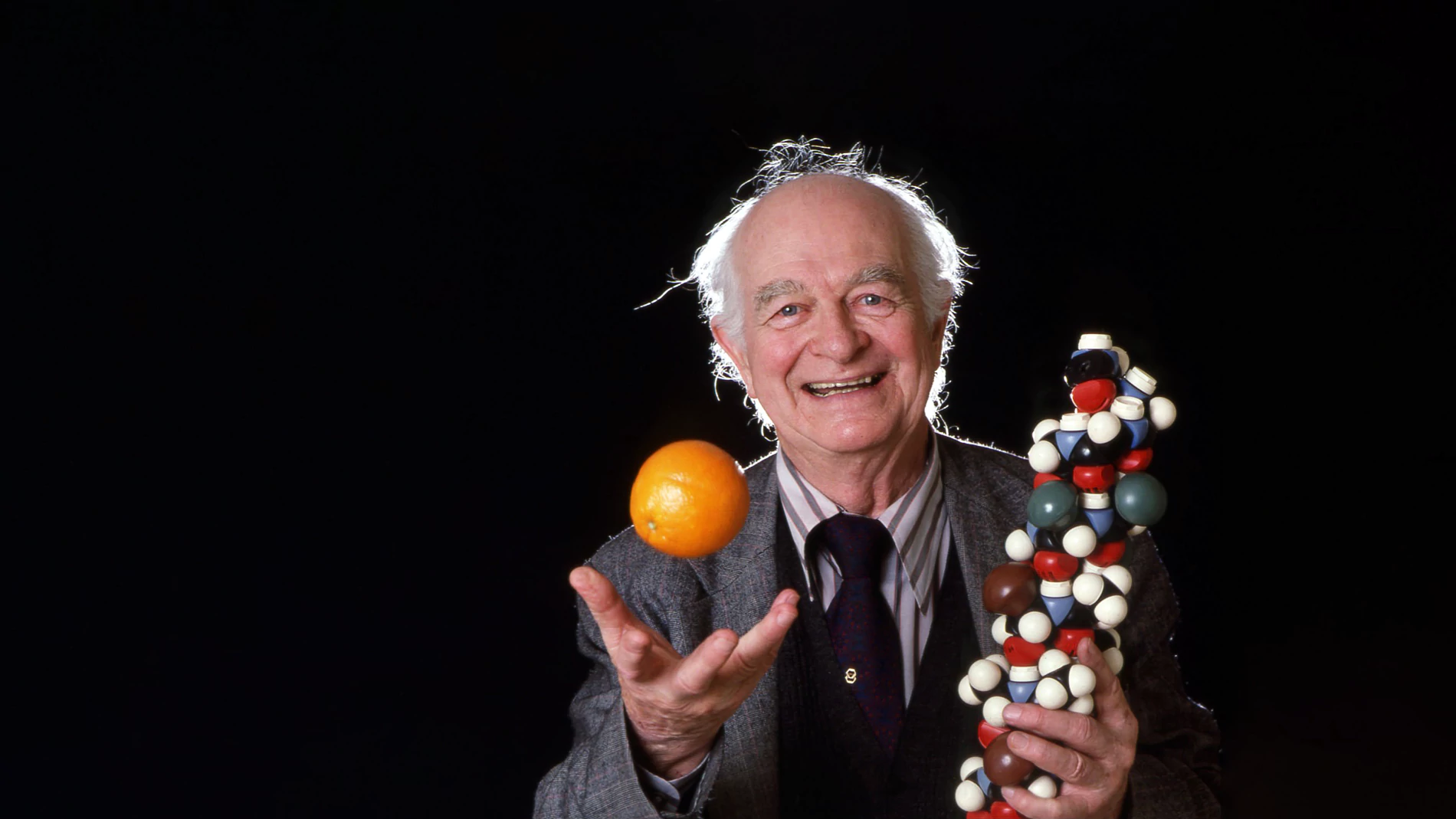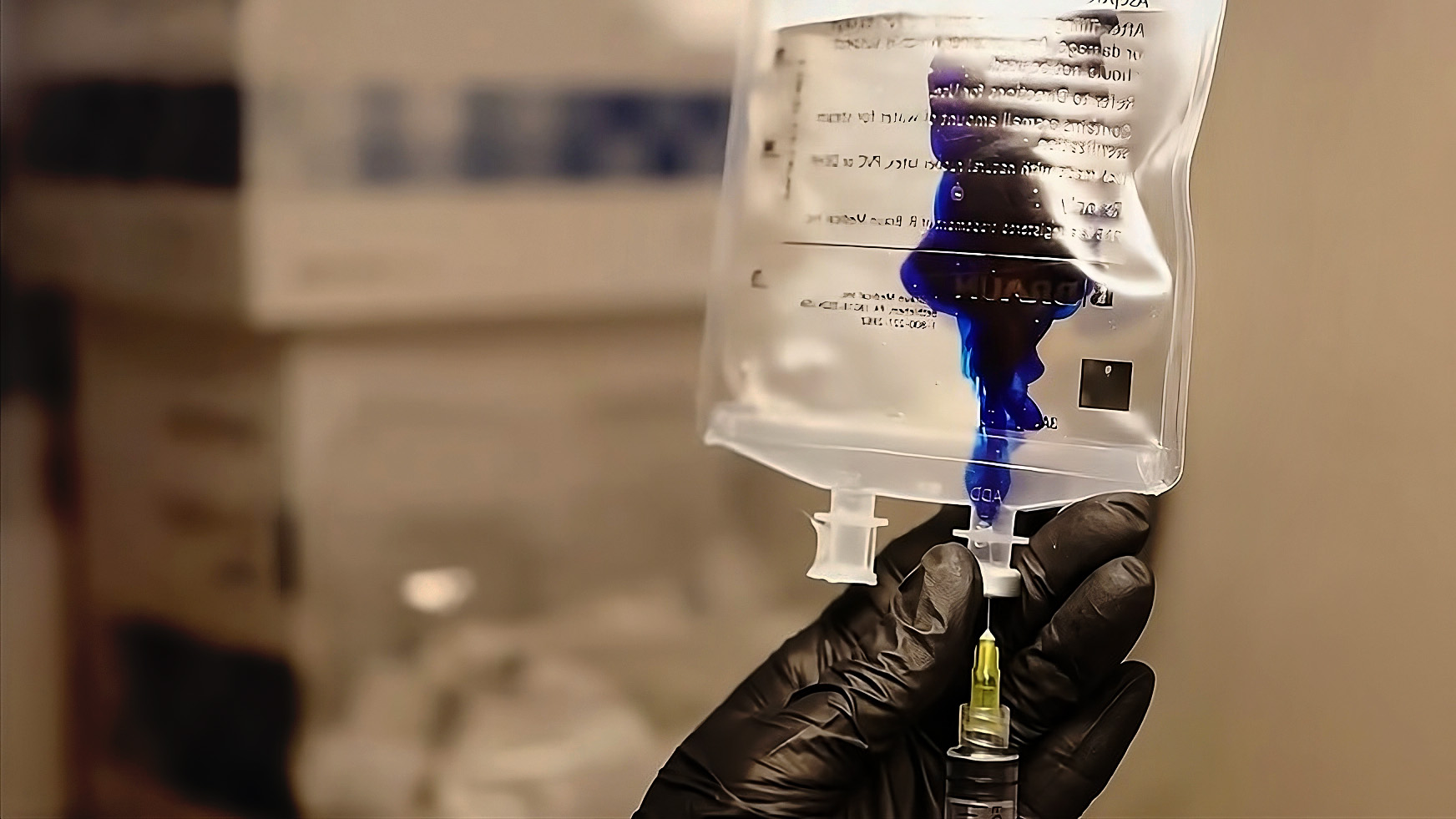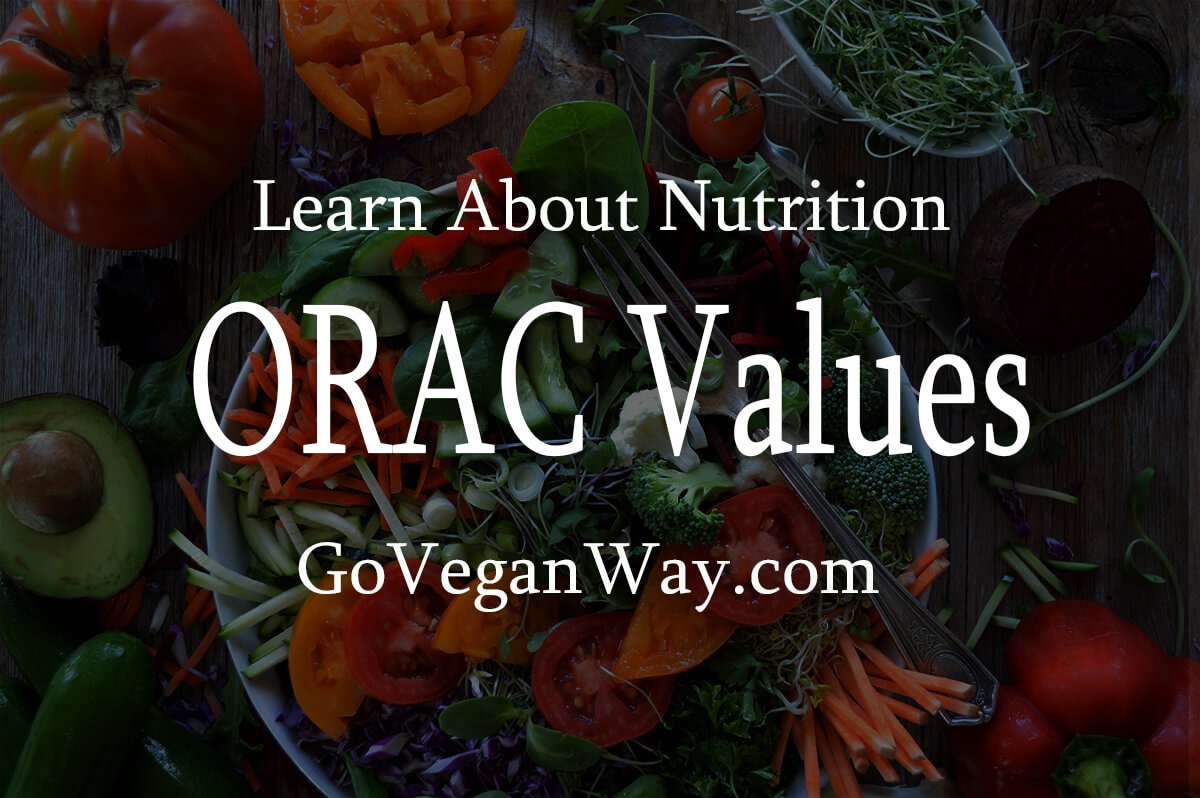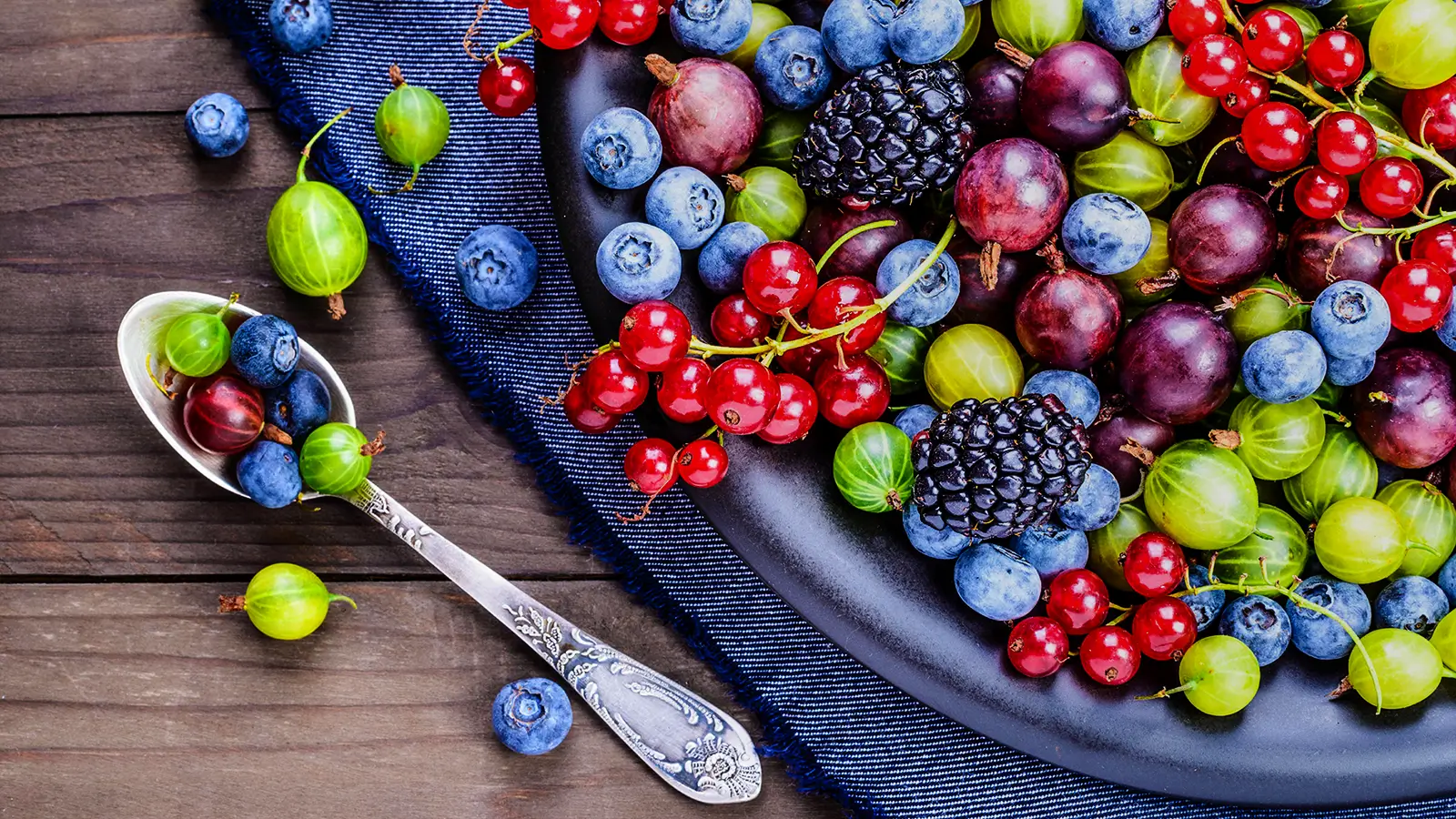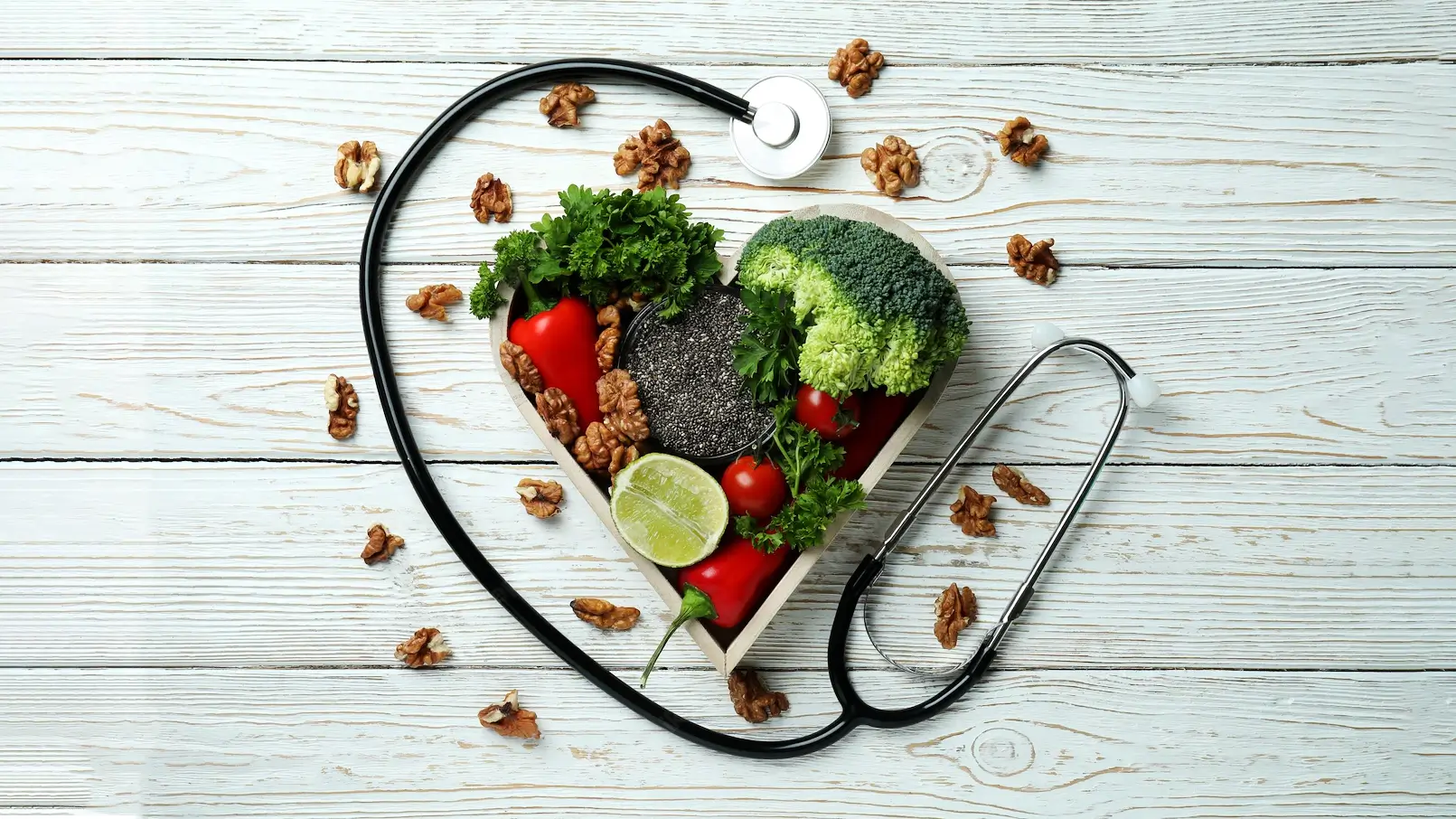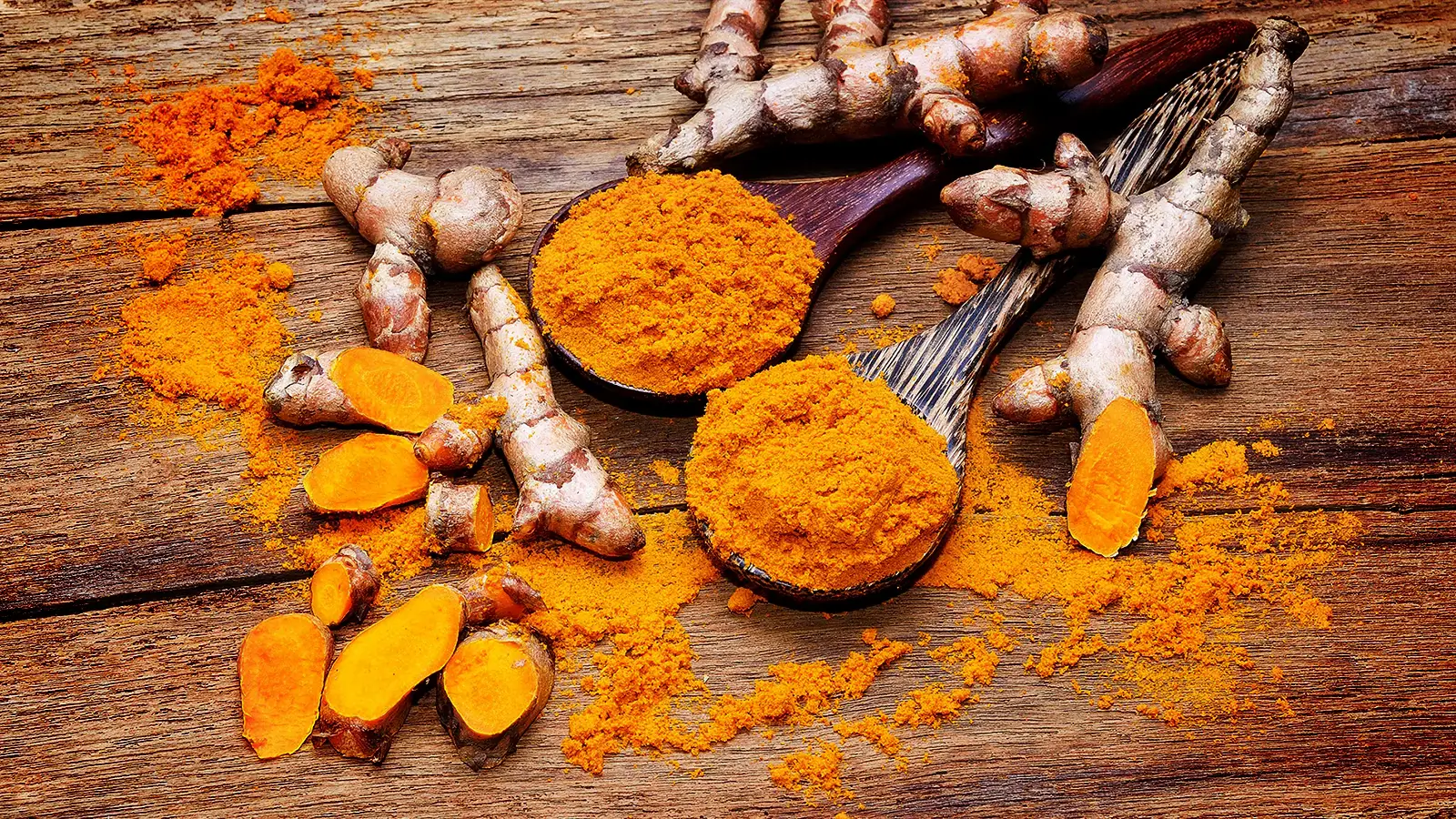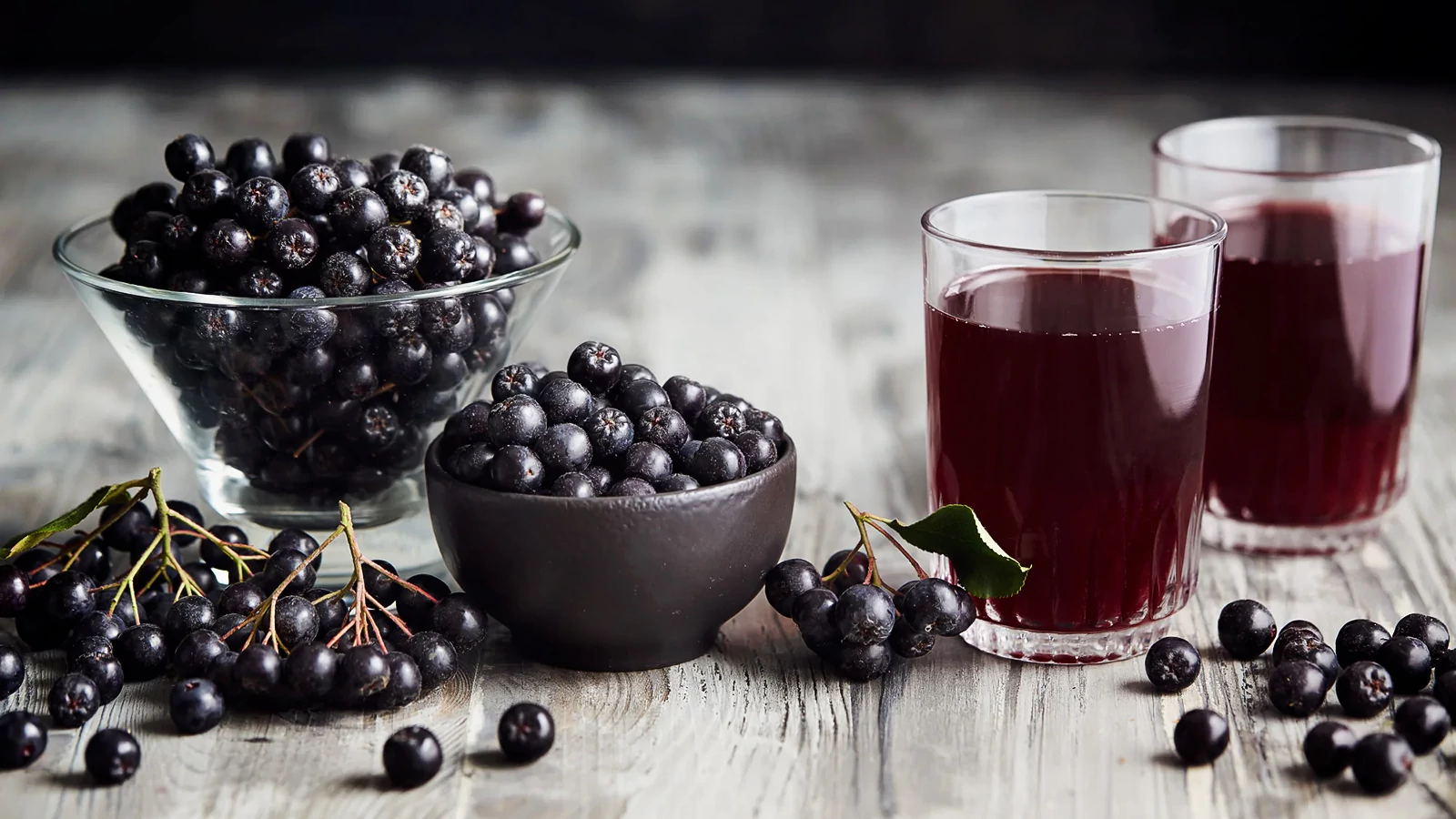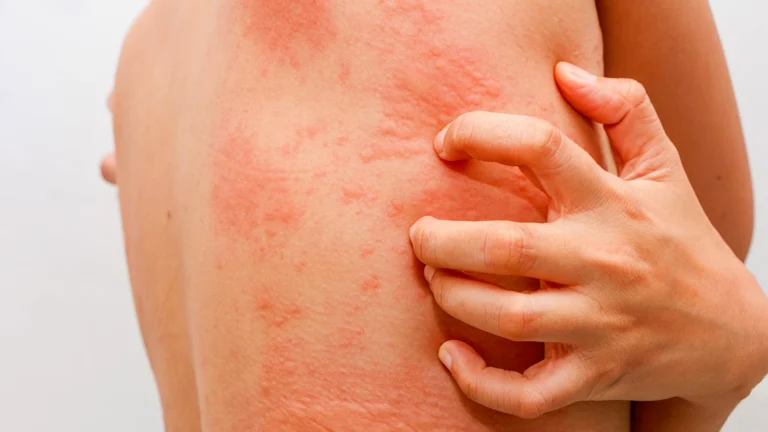Amla: Bewährte Vorteile, Ernährung und Klinische Bedeutung
Amla ist eines der stärksten Antioxidantien der Welt mit einem ORAC-Wert von 261.530. Sie ist eine reichhaltige Quelle von sekundären Pflanzenstoffen, die verschiedene gesundheitliche Vorteile haben.
Milos Pokimica
Geschrieben von: Milos Pokimica
Medizinisch Begutachtet Von: Dr. Xiùying Wáng, M.D.
Aktualisiert am 4. September 2023Die zentralen Thesen:
- Amla ist eines der stärksten Antioxidantien der Welt. Es hat eine ORAC-Wert von 261.530 und ist genauso stark wie Nelken.
- Wissenschaftliche Studien haben bestätigt, dass Amla viele Eigenschaften besitzt, die zur Vorbeugung und Behandlung einer Vielzahl von Krankheiten beitragen können. Sie hat im Grunde bei allen jemals getesteten Krankheiten geholfen.
- Amla kann über verschiedene Mechanismen dazu beitragen, oxidativen Stress zu verhindern oder zu verringern. Sie kann dies direkt tun, indem sie freie Radikale abfängt, aber sie kann auch die körpereigenen antioxidativen Abwehrkräfte stärken, indem sie die Produktion interner Antioxidantien hochreguliert.
- Amla könnte ein vielversprechendes natürliches Mittel zur Vorbeugung oder Behandlung von Schwermetalltoxizität und den damit verbundenen Gesundheitsproblemen sein.
- In wissenschaftlichen Untersuchungen verlängerte es die Lebensdauer von Fruchtfliegen und steigerte auch ihr Sexualverhalten (Pathak et al., 2011). Auch Fliegen auf Amla legten mehr Eier und es schlüpften auch mehr Eier.
- Amla-Extrakt wirkt ähnlich wie nichtsteroidale entzündungshemmende Medikamente, wie z. B. Diclofenac.
- Amla-Extrakt wirkt als natürlicher Thrombozytenaggregationshemmer und Antithrombotikum, der die Bildung von Blutgerinnseln verhindern und die Blutzirkulation in den Gefäßen verbessern kann. P. emblica-Extrakt kann auch die Wirkung von Clopidogrel und Ecosprin verstärken, wenn er in Kombination verwendet wird.
- Amla-Extrakt hat sowohl Anti-H. pylori und antioxidative Aktivitäten, die es eine potenzielle Quelle für den therapeutischen Einsatz gegen Magengeschwüre und Krebs durch diese bacterium.the Anti-H. pylori-Aktivität war aufgrund einer spezifischen Verbindung in den Extrakt, die verantwortlich sein könnte für die Breitspektrum-Antibiotika-Aktivität von Amla gegen andere Antibiotika-resistente Bakterien und andere Arten von Krankheitserregern als gut.
- Amla kann die Fettansammlung und Fibrose in den Leberzellen verringern. Gallussäure, einer der Hauptbestandteile von Amla, kann den Fettstoffwechsel und den oxidativen Stress bei Ratten verbessern, die mit einer fettreichen Diät gefüttert wurden.
- Amla-Fruchtextrakt hat eine schützende Wirkung gegen alkoholbedingten oxidativen Stress, indem er das biochemische Plasmaprofil bei Ratten moduliert. Wenn Sie ein mäßiger Trinker sind und die durch Alkohol verursachten Schäden an Ihren lebenswichtigen Organen verhindern oder verringern wollen, sollten Sie vielleicht versuchen, Amla in Ihre Ernährung aufzunehmen.
- Amla kann die Apoptose in Krebszellen auslösen.
- Amla kann auch die Tumorförderung und -invasion hemmen.
- Amla ist eines der stärksten Chemotherapeutika, die bisher getestet wurden, und zwar aus einem einfachen Grund. Amla kann das ganze Jahr über in hohen Dosen eingenommen werden - mit geringen negativen Nebenwirkungen.
- In einer Studie (Ngamkitidechakul et al., 2010) Amla verringerte das Wachstum der Krebszellen und stoppte dann mit zunehmender Konzentration das Wachstum aller sechs getesteten Krebsarten vollständig. Mit steigender Konzentration wurde das Krebswachstum negativ und die Krebszellen begannen schließlich abzusterben.
- Amla senkt nachweislich die Werte von Cholesterin, Triglyceriden, Lipoprotein niedriger Dichte (LDL) und Lipoprotein sehr niedriger Dichte (VLDL) im Blut und erhöht gleichzeitig die Werte von Lipoprotein hoher Dichte (HDL) und Apolipoprotein A1.
- Eine Stachelbeere pro Tag senkt das schlechte Cholesterin und die Triglyceride innerhalb von drei Wochen um die Hälfte.
- Amla-Saft verringerte die LDL-Oxidation um 90%, was bedeutet, dass er verhinderte, dass LDL gefährlicher wurde. Amla-Saft begrenzt auch die Aufnahme von oxidiertem LDL in Makrophagen, was bedeutet, dass er die Bildung von Schaumzellen verhindert.
- Amla hatte eine etwas bessere Wirkung als Simvastatin sowohl auf die Senkung des LDL- als auch auf die Erhöhung des HDL-Spiegels.
- Amla verringerte bei bestimmten Konzentrationen die Anhaftung von Streptococcus mutans an den Zähnen um 50%. Sie verringerten auch die Biofilmbildung um 50% bei niedrigeren Konzentrationen. Außerdem verringerten sie die Glucansynthese und die Klebrigkeit des Bakteriums.
- Amla enthält Verbindungen, die die Enzyme hemmen können, die Kohlenhydrate in Glukose umwandeln, wodurch die Menge an Zucker, die in den Blutkreislauf gelangt, verringert wird.
- Amla ist reich an Oxalaten, die bei anfälligen Personen zur Bildung von Nierensteinen beitragen können.
Was ist Amla?
Amla ist eine indische Stachelbeere, die traditionell als getrocknetes Pulver oder Saft konsumiert wird. Die indische Stachelbeere ist eine Frucht, die an einem Baum wächst, der zur Familie der Euphorbiaceae gehört. Sie ist in Indien, Südostasien, China, Iran und Pakistan heimisch. Sie ist auch unter dem Namen Phyllanthus emblica L. bekannt.
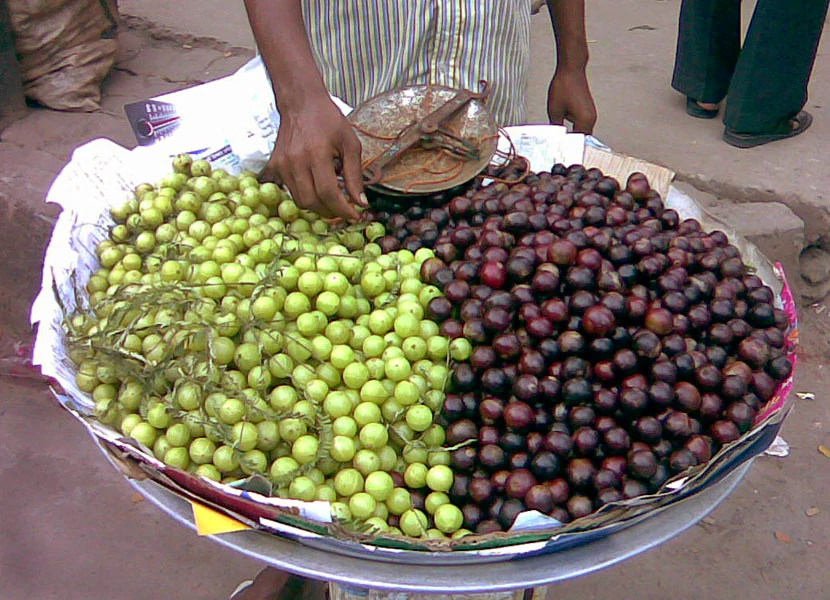
Das Wichtigste an Amla ist, dass es eines der stärksten Antioxidantien der Welt ist. Diese Eigenschaft wurde anerkannt in Ayurveda, das alte indische Medizinsystem, und Indische Stachelbeere und sein getrocknetes Pulver werden in der traditionellen Medizin bei einer Vielzahl von Krankheiten eingesetzt.
Amla genießt in Indien einen mythischen Ruf, weil man glaubt, dass sie aus Tropfen von Amrit, dem Nektar der Unsterblichkeit, entstanden ist. Der alten indischen Mythologie zufolge war Amla der erste Baum, der im Universum erschaffen wurde. Der indische Stachelbeerbaum soll auch von Phussa Buddha, dem ersten Buddha der Antike, zur Erleuchtung genutzt worden sein.
Amla enthält viele Polyphenole, das sind pflanzliche Chemikalien, die antioxidative und entzündungshemmende Eigenschaften haben. Amla hat auch einen hohen Anteil an Vitamin C, das für das Immunsystem und die Haut wichtig ist. Die Kombination aus Polyphenolen und Vitamin C verleiht Amla eine starke antioxidative Wirkung, d. h. sie kann die Zellen vor Schäden durch freie Radikale schützen. Amla kann auch das körpereigene antioxidative Abwehrsystem stärken, was dazu beiträgt, Krankheiten und Alterung zu verhindern.
Sie hat eine ORAC-Wert von 261.530 und ist genauso wirksam wie Nelken. Es wurde viel über Amla geforscht und es hat sich gezeigt, dass sie sehr wirksam gegen viele Krankheiten ist (Gul et al., 2022).
Amla ist eine Frucht mit großem Potenzial für die Gesundheitsförderung und Krankheitsprävention. Sie hat eine reiche Zusammensetzung von natürlichen Verbindungen, die Antioxidans, entzündungshemmende, antihyperlipidämische, antidiabetische, krebshemmende, verdauungsfördernde und neuroprotektive Wirkungen. Er kann den Cholesterin- und Zuckerspiegel im Blut senken, was Herzkrankheiten und Diabetes vorbeugen oder behandeln kann. Er kann auch Krebszellen bekämpfen, indem er den Zelltod auslöst oder ihr Wachstum stoppt. Es kann auch den Verdauungstrakt vor Geschwüren und Infektionen schützen, indem es die Schleimsekretion und die Darmmikrobiota fördert. Es kann auch das Gehirn vor Neurodegeneration und kognitivem Verfall schützen, indem es den Blutfluss und die Nervenfunktion verbessert.
Gesundheitliche Vorteile von Amla.
Amla kann allein oder in Kombination mit anderen Kräutern zur Behandlung von Erkältungen, Fieber, Verdauungsproblemen, Lebererkrankungen, Geschwüren, Entzündungen, Haarproblemen und vielem mehr verwendet werden. Sie ist reich an Vitamin C, Polyphenolen, Flavonoiden und anderen sekundäre Pflanzenstoffe die antioxidative, entzündungshemmende und immunmodulatorische Eigenschaften haben. E. officinalis schützt nachweislich vor durch oxidativen Stress verursachten Schäden in verschiedenen Geweben und Organen wie Leber, Niere, Herz, Gehirn und Lunge. Wissenschaftliche Studien haben bestätigt, dass Amla zahlreiche Eigenschaften besitzt, die zur Vorbeugung und Behandlung von Krankheiten beitragen können.
Einige dieser Eigenschaften sind (Gul et al., 2022):
- Fiebersenkend: Amla kann Fieber reduzieren, indem es die Körpertemperatur senkt.
- Analgetikum: Amla kann Schmerzen lindern, indem es die Schmerzsignale im Gehirn blockiert.
- Antitussivum: Amla kann den Husten unterdrücken, indem es den Hals und die Lunge beruhigt.
- Antiatherogenes: Amla kann die Bildung von Plaque in den Arterien verhindern, indem es den Cholesterin- und Triglyceridspiegel im Blut senkt.
- Adaptogene: Amla kann dem Körper bei der Stressbewältigung helfen, indem es den Hormonhaushalt ausgleicht und das Immunsystem stärkt.
- Cardioprotective: Amla kann das Herz schützen, indem es die Blutzirkulation verbessert und Blutgerinnseln vorbeugt.
- Gastroprotektiv: Amla kann Magen und Darm schützen, indem sie die Schleimsekretion erhöht und das Wachstum schädlicher Bakterien hemmt.
- Antianämie: Amla kann Anämie vorbeugen oder behandeln, indem es das Hämoglobin und die Anzahl der roten Blutkörperchen im Blut erhöht.
- Antihypercholesterinämie: Amla kann den hohen Cholesterinspiegel im Blut senken, indem sie das Enzym hemmt, das in der Leber Cholesterin produziert.
- Wundheilung: Amla kann Wunden heilen, indem sie das Wachstum neuer Hautzellen fördert und Infektionen vorbeugt.
- Antidiarrhoika: Amla kann Durchfall verhindern, indem sie überschüssiges Wasser und Giftstoffe aus dem Darm absorbiert.
- Antiatherosklerotisch: Amla kann die Verhärtung der Arterien verhindern oder rückgängig machen, indem sie die Entzündung und den oxidativen Stress in den Blutgefäßen reduziert.
- Hepatoprotektiv: Amla kann die Leber schützen, indem sie ihre Funktion und Entgiftungsfähigkeit verbessert.
- Nephroprotektiv: Amla kann die Nieren schützen, indem sie die durch Giftstoffe oder Medikamente verursachten Schäden verhindert oder verringert.
- Neuroprotektiv: Amla kann das Gehirn schützen, indem es seine Sauerstoffversorgung und Nervenfunktion verbessert.
Amla hat auch krebshemmende Wirkungen, das heißt, sie kann Krebszellen abtöten oder deren Wachstum stoppen (Gul et al., 2022).
Amla enthält zahlreiche sekundäre Pflanzenstoffe wie Gallussäure, Ellagsäure, Pyrogallol, Corilagin, Geraniin, Elaeocarpusin und die Prodelphinidine B1 und B2, die antineoplastische Eigenschaften haben.
Diese sekundären Pflanzenstoffe können die Apoptose oder den programmierten Zelltod in Krebszellen auslösen oder sie daran hindern, sich zu teilen oder auszubreiten. Amla hat auch radiomodulatorische, chemomodulatorische und chemopräventive Wirkungen, d. h. sie kann die Wirksamkeit einer Strahlen- oder Chemotherapie verstärken oder verhindern, dass Krebs überhaupt erst entsteht.
Amla hat auch entzündungshemmende, antimutagene und immunmodulatorische Eigenschaften, d. h. sie kann Entzündungen reduzieren, genetische Mutationen verhindern und das Immunsystem regulieren (Gul et al., 2022).
Amla ist auch ein starkes Antioxidans, das heißt, es kann freie Radikale oder instabile Moleküle, die die Zellen schädigen können, abfangen (Gul et al., 2022). Freie Radikale werden durch verschiedene Faktoren wie Umweltverschmutzung, Rauchen, Alterung oder Entzündungen gebildet. Freie Radikale können oxidativen Stress oder Ungleichgewicht in den Zellen verursachen, was zu Krankheiten und Alterung führen kann. Amla kann oxidativen Stress verhindern oder reduzieren, indem es Elektronen an freie Radikale abgibt und sie neutralisiert.
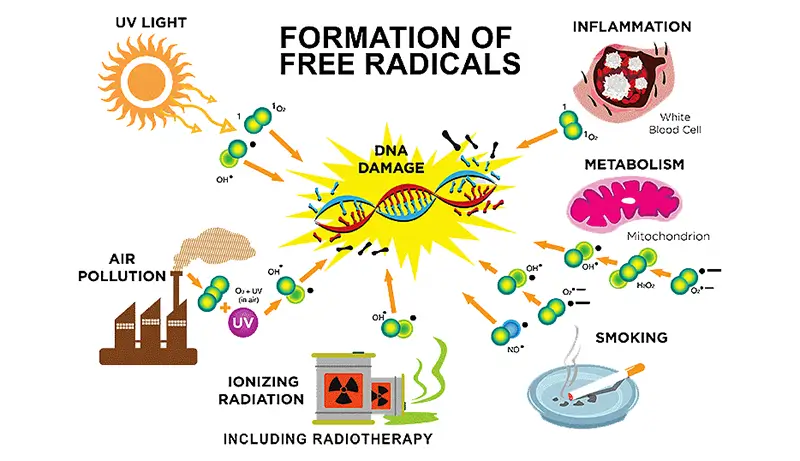
Es hilft im Grunde bei allem, was jemals getestet wurde. Wenn Sie eine Krankheit haben, egal was es ist, ist es sehr wahrscheinlich, dass Amla helfen kann. Es wird sogar als Schlangengift-neutralisierendes Mittel verwendet.
Und zu allem Überfluss tötet es Krebszellen mit einer Wirksamkeit, die den meisten der stärksten Chemotherapeutika, die derzeit in der Krebsbehandlung eingesetzt werden, überlegen ist. Im Gegensatz zu einer Chemotherapie können Sie Amla das ganze Jahr über einnehmen, und zwar für den Rest Ihres Lebens. Es gilt als das Wundermittel der Alternativmedizin, wenn es um die Vorbeugung und Behandlung von Krebs geht.
Sie ist so wirksam, dass Big Pharma sich weigert, diese Beere in der Krebsbehandlung in vollem Umfang zu erforschen. Es gibt nur sporadische Krebsforschung, die meist von unabhängigeren Quellen durchgeführt wird.
Phytochemie von Amla.
Amla enthält eine Vielzahl von sekundären Pflanzenstoffen, d. h. natürliche Verbindungen, die biologische Wirkungen auf den Körper haben. Die sekundären Pflanzenstoffe sind in verschiedenen Teilen der Amla-Pflanze zu finden, z. B. in den Früchten, Blättern und Wurzeln.
Eine der am häufigsten vorkommenden Gruppen von Phytochemikalien in Amla sind die Polyphenole. Polyphenole sind Antioxidantien, die die Zellen vor oxidativem Stress und Entzündungen schützen können. Außerdem können sie verschiedene zelluläre Prozesse wie Genexpression, Enzymaktivität und Signaltransduktion modulieren.
Phenolsäuren sind Verbindungen, die einen Phenolring mit einer oder mehreren daran gebundenen Carbonsäuregruppen aufweisen. Amla-Früchte und daraus hergestellte Handelsprodukte enthalten mehrere Phenolsäuren, wie 4-Hydroxybenzoesäure, Cumarsäure, Gallussäure, Protocatechusäure, Syringasäure und Vanillinsäure.
Flavone sind Verbindungen, die zwei Phenolringe aufweisen, die durch ein doppelt gebundenes Sauerstoffatom verbunden sind. Amla-Früchte und daraus hergestellte Handelsprodukte enthalten Apigenin, Luteolin und Myricetin.
Wie Sie sehen, ist Amla eine reiche Quelle an sekundären Pflanzenstoffen, die verschiedene gesundheitliche Vorteile haben können.
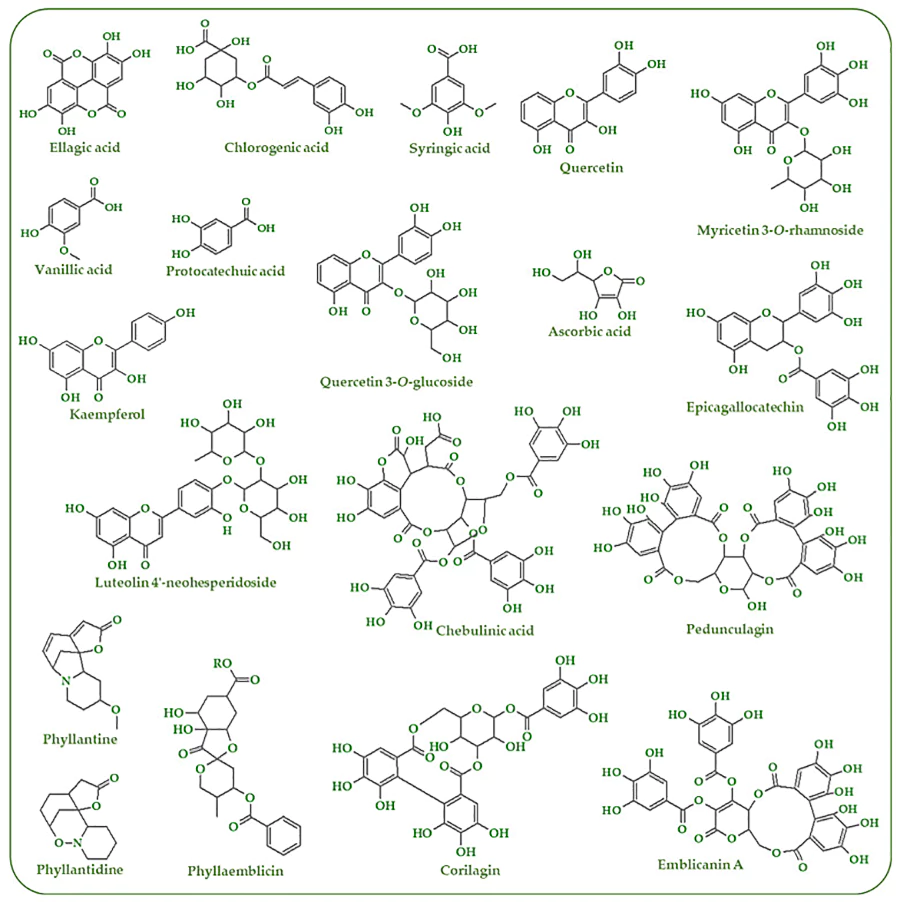
Antioxidative Aktivität.
Amla ist eine Frucht, die das antioxidative Abwehrsystem stärken und dem Körper helfen kann, mit oxidativem Stress und Entzündungen fertig zu werden. Einer der Hauptvorteile ist ihre starke antioxidative Wirkung und einer der Hauptgründe, warum wir sie als Nahrungsergänzungsmittel verwenden.
Sie hat einen ORAC-Wert von 261.530 und ist genauso wirksam wie Gewürznelken, mit einem großen Unterschied. Wir könnten viel mehr Amla verzehren als Gewürznelken, weil sie nicht so stark schmeckt.
Amla kann über verschiedene Mechanismen dazu beitragen, oxidativen Stress zu verhindern oder zu reduzieren. Es kann dies direkt tun, indem es freie Radikale abfängt, aber es ist auch in der Lage, die körpereigenen antioxidativen Abwehrkräfte zu stärken, indem es die Produktion interner Antioxidantien hochreguliert, wie z. B. Hyperventilieren (SOD), Katalase (CAT), Glutathionperoxidase (GPx), und Glutathion-Reduktase (GR). Es ist auch in der Lage, die Expression von Genen die an der Reaktion auf oxidativen Stress beteiligt sind.
Ein weiterer Mechanismus, mit dem Amla vor oxidativem Stress schützt, ist die Chelatisierung von Übergangsmetallionen, die in der Umwelt vorhanden sind und die Bildung reaktiver Sauerstoffspezies (ROS) katalysieren können. Sie enthält hydrolysierbare Tannine wie Emblicanin A und B, Pedunculagin und Punigluconin, die eine starke Metallbindungskapazität haben und die Verfügbarkeit dieser Metallionen für die Bildung von ROS verringern können.
Wichtig ist, dass Amla-Extrakte und -Verbindungen in Konzentrationen, die eine antioxidative Wirkung zeigen, für die Zellen nicht toxisch sind. Das bedeutet, dass sie sicher in der Anwendung sind und keine schädlichen Nebenwirkungen verursachen. Bei manchen Menschen kann es jedoch bei der Verwendung von Amla-Produkten zu Allergien oder Wechselwirkungen mit bestimmten Medikamenten kommen. Daher ist es ratsam, vor der Einnahme von Amla-Produkten Ihren Arzt zu konsultieren, wenn Sie irgendwelche Beschwerden oder Allergien haben.
Amla und Oxidativer Stress bei Tieren.
Mehrere Studien haben gezeigt, dass Extrakte aus Amla-Früchten Tiere vor oxidativen Schäden schützen können, die durch verschiedene Faktoren wie Chemikalien, Strahlung oder Diabetes verursacht werden.
So wurde in einer Studie festgestellt, dass die tägliche Verabreichung von Amla-Fruchtextrakt an Mäuse in Höhe von 500 mg/kg Körpergewicht über einen Zeitraum von 28 Tagen die Aktivität von Glutathion, Katalase und Superoxiddismutase in deren Thymus erhöht (Singh et al., 2016).
Sie setzten die Mäuse Arsen oder Amla oder beides für 28 Tage und untersuchten dann ihre Thymus, ein Organ, das die Immunzellen reguliert.
Sie stellten fest, dass Arsenbelastung verursachte erhebliche Schäden an der Thymusdrüse der Mäuse. Es erhöht den Gehalt an Lipidperoxidation, einem Prozess, der die Zellmembranen schädigt. Es erhöht auch die Produktion reaktiver Sauerstoffspezies, d. h. schädlicher Moleküle, die die DNA, Proteine und andere Bestandteile der Zellen schädigen können. Die Arsenexposition verringert auch den Gehalt an Glutathion, einem wichtigen Antioxidans, das unser Körper zum Schutz der Zellen vor oxidativem Stress einsetzt. Auch die Aktivität von Enzymen, die an der antioxidativen Abwehr beteiligt sind, wie Superoxiddismutase, Katalase und Cytochrom-C-Oxidase (COX), wurde verringert. Darüber hinaus senkte die Arsenexposition das mitochondriale Membranpotenzial (MMP), das ein Indikator für die Gesundheit und Funktion der Mitochondrien ist, den energieproduzierenden Organellen der Zellen.
Die Arsenexposition löste auch die Apoptose, den programmierten Zelltod, im Thymus der Mäuse aus. Apoptose ist ein Prozess, bei dem geschädigte oder unerwünschte Zellen aus dem Körper eliminiert werden. Eine übermäßige oder unangemessene Apoptose kann jedoch zu Gewebeschäden und Funktionsstörungen der Organe führen.
Bei der gleichzeitigen Behandlung der Mäuse mit Arsen und Amla wurden jedoch bemerkenswerte Verbesserungen bei all diesen Parametern beobachtet. Die gleichzeitige Behandlung mit Arsen und Amla verringerte die Lipidperoxidation und die ROS-Produktion in der Thymusdrüse der Mäuse. Sie erhöhte auch die Lebensfähigkeit der Zellen und stellte die Werte von Glutathion und antioxidativen Enzymen in der Thymusdrüse wieder her. Die gleichzeitige Behandlung mit Amla erhöhte auch die MMP, verbesserte die mitochondriale Funktion im Thymus und verringerte den Prozentsatz apoptotischer und nekrotischer Zellen im Thymus.
Die Ergebnisse dieser Studie zeigen, dass Amla eine schützende Wirkung gegen Arsen-induzierten oxidativen Stress und Apoptose in den Thymozyten von Mäusen hat. Die Forscher vermuten, dass dies auf sein starkes antioxidatives Potenzial zurückzuführen sein könnte, das ROS abfangen und die Lipidperoxidation verhindern kann. Sie vermuten auch, dass Amla die Expression von Genen modulieren kann, die an der Apoptose und der Funktion der Mitochondrien beteiligt sind.
Diese Studie zeigt, dass Amla ein vielversprechender natürlicher Wirkstoff zur Vorbeugung oder Behandlung von Arsentoxizität und den damit verbundenen Gesundheitsproblemen sein kann.
Eine weitere Studie (Reddy et al., 2010) untersuchten die Wirkung von Amla-Fruchtextrakt auf alkoholinduzierten oxidativen Stress bei Mäusen. Alkohol ist eine Substanz, die ROS erzeugen und Antioxidantien im Körper verbrauchen kann, was zu Leberschäden und anderen Problemen führt.
Die Mäuse, die vor der Verabreichung von Alkohol einen Extrakt aus Amla-Früchten in einer Menge von 100 mg/kg Körpergewicht erhielten, wiesen niedrigere Stickoxidwerte (NOx) auf, ein freies Radikal, das Entzündungen und Gewebeschäden verursachen kann.
Die Studie ergab, dass der Alkoholkonsum das biochemische Plasmaprofil der Ratten, das die Gesundheit ihrer Leber und Nieren widerspiegelt, erheblich schädigt. Alkohol erhöht die Werte von Nitrit/Nitrat (NOx), einem Marker für oxidativen Stress, sowie von Gesamtbilirubin, Kreatinin und abnormalen Lipiden und Lipoproteinen, die auf eine Funktionsstörung von Leber und Nieren hinweisen. Alkohol senkt auch die Werte von Gesamtprotein, Albumin/Globulin (A/G)-Verhältnis und Harnsäure, die für die Aufrechterhaltung des Flüssigkeitshaushalts und die Vorbeugung von Gicht wichtig sind. Interessanterweise wirkte sich Alkohol nicht auf den Glukosespiegel der Ratten aus, was darauf schließen lässt, dass er ihre Insulinempfindlichkeit nicht beeinträchtigte.
Wurde den Ratten jedoch Amla-Fruchtextrakt zusammen mit Alkohol verabreicht, zeigten sie eine deutliche Verbesserung ihres biochemischen Plasmaprofils. Der Amla-Fruchtextrakt normalisierte die Werte von NOx, Gesamtbilirubin, Kreatinin, Lipiden und Lipoproteinen, Gesamtprotein, A/G-Verhältnis und Harnsäure. Er reduzierte auch die Korrelation zwischen NOx und anderen schädlichen Substanzen, wie Cholesterin, Triglyceride, VLDL-C, LDL-C und Gesamtbilirubin. Andererseits erhöhte der Extrakt die Korrelation zwischen NOx und nützlichen Substanzen, wie HDL-C und Harnsäure.
Die Studie kam zu dem Schluss, dass Amla-Fruchtextrakt eine schützende Wirkung gegen alkoholinduzierten oxidativen Stress hat, indem er das biochemische Plasmaprofil bei Ratten moduliert. Die Studie führte diese Wirkung auf Phytophenole, wie Tannine und Flavonoide, und Vitamin C zurück. Diese Verbindungen haben antioxidative, entzündungshemmende und anti-lipidämische Eigenschaften, die den schädlichen Auswirkungen von Alkohol auf Leber und Nieren entgegenwirken können.
Was bedeutet das nun für Sie? Nun, wenn Sie ein mäßiger Trinker sind, der die durch Alkohol verursachten Schäden an Ihren lebenswichtigen Organen verhindern oder verringern möchte, sollten Sie vielleicht versuchen, Amla in Ihre Ernährung aufzunehmen.
Diese Studien deuten darauf hin, dass Amla-Extrakte Tiere vor oxidativem Stress schützen können, indem sie ihre antioxidative Kapazität erhöhen und ihre oxidativen Schäden verringern. Die Polyphenole in Amla-Extrakten können als direkte Antioxidantien wirken, indem sie freie Radikale abfangen, oder als indirekte Antioxidantien, indem sie die antioxidativen Enzyme verstärken oder die Genexpression modulieren.
Amla und Oxidativer Stress beim Menschen.
Die antioxidative Wirkung von Amla wurde auch in klinischen Studien am Menschen mit verschiedenen Bevölkerungsgruppen und Erkrankungen getestet.
Eine Studie bezog sich auf Raucher, die durch Zigarettenrauch einer hohen ROS-Belastung ausgesetzt sind und ein erhöhtes Risiko für durch oxidativen Stress bedingte Krankheiten haben (Biswas et al., 2014). Die Raucher, die 60 Tage lang zweimal täglich 250 mg Amla-Fruchtextrakt eingenommen hatten, wiesen niedrigere Werte an Lipidperoxidationsprodukten und höhere Werte an Antioxidantien in ihrem Blut auf als die Placebogruppe.
An der Studie nahmen zwei Gruppen von Rauchern im Alter zwischen 20 und 60 Jahren teil, die seit mehr als 10 Jahren mehr als 15 Zigaretten pro Tag rauchten. Eine Gruppe nahm zweimal täglich 250 mg Amla-Fruchtextrakt ein, während die andere Gruppe ein Placebo einnahm. Die Forscher maßen verschiedene Parameter im Zusammenhang mit dem Rauchen und der Gesundheit vor und nach 60 Tagen Behandlung.
Die Gruppe mit dem Amla-Fruchtextrakt berichtete über eine Verbesserung mehrerer mit dem Rauchen verbundener Symptome, wie Kurzatmigkeit, Husten, Sodbrennen, Schlafqualität und Müdigkeit. Sie hatten auch eine bessere Mundhygiene und weniger schlechten Atem.
Doch wie sieht es mit den objektiven Parametern aus? Wie wirkte sich Amla auf das Herz-Kreislauf-System und die Atmungsorgane der Raucher aus? Und was ist mit dem oxidativen Stress und den durch das Rauchen verursachten DNA-Schäden? Nun, die Gruppe mit dem Amla-Fruchtextrakt hatte auch in diesen Bereichen bessere Ergebnisse.
Zunächst einmal verbessert der Amla-Fruchtextrakt den Cholesterinspiegel von Rauchern. HDL wird oft als das "gute" Cholesterin bezeichnet, weil es dazu beiträgt, überschüssiges Cholesterin aus den Arterien zu entfernen und die Oxidation von LDL zu verhindern. Oxidation ist eine chemische Reaktion, die LDL für die Arterien noch schädlicher macht.
In der Extraktgruppe war nach 60 Tagen ein signifikanter Anstieg des HDL-Spiegels zu verzeichnen, während dies in der Placebogruppe nicht der Fall war. Die Extraktgruppe hatte auch ein niedrigeres Verhältnis von Gesamtcholesterin zu HDL und von LDL zu HDL, die Indikatoren für das Herzrisiko sind.
Zweitens verringerte der Extrakt die Thrombozytenaggregation bei den Rauchern. Rauchen ist einer der Faktoren, der die Thrombozyten klebriger und anfälliger für die Aggregation machen kann. In der Extraktgruppe war die Thrombozytenaggregation nach 60 Tagen deutlich geringer. Das bedeutet, dass der Extrakt die Wahrscheinlichkeit einer abnormalen Blutgerinnung verringert.
Drittens senkte der Extrakt die Lipoprotein(a)-Werte der Raucher. Lipoprotein (a) ist eine weitere Fettart, die im Blut zirkuliert und zur Arteriosklerose beitragen kann. Es ähnelt dem LDL, hat aber ein zusätzliches Protein an sich gebunden. Dieses Protein macht Lipoprotein (a) widerstandsfähiger gegen den Abbau durch Enzyme und erhöht die Wahrscheinlichkeit, dass es sich in den Arterienwänden ansammelt. Lipoprotein (a) wird auch mit erhöhten Entzündungen und oxidativem Stress in den Arterien in Verbindung gebracht. In der Extraktgruppe waren die Lipoprotein(a)-Werte nach 60 Tagen deutlich niedriger. Das bedeutet, dass der Extrakt einen weiteren Risikofaktor für atherosklerotische Erkrankungen reduziert hat.
Viertens verringerte der Extrakt den oxidativen Stress und die DNA-Schäden bei den Rauchern. Rauchen erhöht die Produktion von freien Radikalen und verringert den Gehalt an Antioxidantien im Körper, was zu oxidativem Stress führt.
Die Gruppe mit Amla-Fruchtextrakt wies nach 60 Tagen deutlich niedrigere 8-OH-2-Desoxyguanosin-Werte auf (ein Marker für DNA-Schäden durch freie Radikale). Dies bedeutet, dass Amla oxidativen Stress reduziert und die DNA vor Schäden durch freie Radikale schützt.
Eine weitere Studie betraf Patienten mit metabolisches Syndrom (MetS), einem Bündel von Risikofaktoren für Herz-Kreislauf-Erkrankungen und Diabetes, wie Bluthochdruck, hoher Blutzucker, hoher Cholesterinspiegel und abdominale Fettleibigkeit (Usharani et al., 2019). Wenn Sie unter dem metabolischen Syndrom (MetS) leiden, sind Sie möglicherweise gefährdet, ernsthafte Gesundheitsprobleme wie Herzkrankheiten, Schlaganfall und Diabetes zu entwickeln. Es ist im Grunde die Summe aller Wohlstandskrankheiten, die durch die übliche amerikanische Ernährung mit tierischen Produkten und verarbeiteten Lebensmitteln verursacht werden. Diese Erkrankungen können Ihre Blutgefäße schädigen und die Funktion Ihres Körpers beeinträchtigen. Endothelium, der Innenauskleidung der Arterien. Die endotheliale Dysfunktion (ED) ist ein Schlüsselfaktor für die Entstehung und das Fortschreiten von Atherosklerose, d. h. die Ablagerung von Plaque in den Arterien, die zu Herzinfarkten und Schlaganfällen führen kann. Diese Patienten haben oft einen erhöhten oxidativen Stress und Entzündungen in ihrem Körper, weil sie nicht genug essen Lebensmittel, die einen angemessenen ORAC-Wert aufweisen sowie alle anderen Toxizität Und chronische Entzündungen die es gibt. Das ist ein Grund, warum es immer einen Markt für Superfood-Extrakte als Ersatz für eine gesunde Ernährung gibt.
In dieser Studie wiesen die Patienten, die 12 Wochen lang zweimal täglich entweder 250 oder 500 mg Amla-Fruchtextrakt einnahmen, niedrigere Werte an Lipidperoxidationsprodukten und höhere Glutathionwerte im Blut auf als die Placebogruppe.
Die wichtigste Behandlung von MetS besteht darin, den Lebensstil zu ändern, z. B. eine gesunde, überwiegend cholesterinarme Ernährung auf Planetenbasis zu sich zu nehmen, regelmäßig Sport zu treiben, mit dem Rauchen aufzuhören und Stress zu bewältigen. Möglicherweise müssen Sie auch Medikamente einnehmen, um Ihren Blutdruck, Blutzucker und Cholesterinspiegel zu kontrollieren. Diese Medikamente können jedoch Nebenwirkungen wie Übelkeit, Schwindel, Müdigkeit, Muskelschmerzen und Leberschäden haben. Wäre es nicht toll, wenn es eine natürliche Alternative in Form von Nahrungsergänzungsmitteln gäbe, die Ihnen helfen könnte, Ihre Herzgesundheit und Ihren Stoffwechsel zu verbessern, ohne dass es zu unerwünschten Nebenwirkungen kommt? Eine magische Pille.
Nun, es gibt sie. Eine aktuelle Studie hat gezeigt, dass ein standardisierter wässriger Extrakt aus Amla-Früchten die ED, den oxidativen Stress, die systemische Entzündung und das Lipidprofil bei Personen mit MetS deutlich verbessern kann.
Bei der Studie handelte es sich um eine randomisierte, doppelblinde, placebokontrollierte klinische Studie, an der 59 Personen mit MetS teilnahmen, die in drei Gruppen eingeteilt wurden: Eine Gruppe erhielt zweimal täglich 250 mg wässrigen P. emblica-Extrakt (PEE), eine andere Gruppe zweimal täglich 500 mg PEE und die dritte Gruppe erhielt 12 Wochen lang zweimal täglich ein Placebo.
Die Verabreichung von 250 mg und 500 mg zweimal täglich zeigte eine signifikante Verringerung des Reflexionsindex (ein Gerät, das den Blutfluss in den Fingern misst), was auf eine verbesserte Endothelfunktion hinweist. Sie zeigten auch eine signifikante Verbesserung der Biomarker für oxidativen Stress, indem sie die Stickoxid- und Glutathionwerte erhöhten und die Malondialdehydwerte senkten.
Sie zeigten auch eine signifikante Verbesserung der systemischen Entzündungs-Biomarker, indem sie die Werte des hochsensitiven C-reaktiven Proteins senkten. Hohe Sensitivität C-reaktives Protein ist ein Protein, das Entzündungen im Körper anzeigt und mit einem erhöhten Risiko für Herz-Kreislauf-Erkrankungen in Verbindung gebracht wird.
Amla zeigte auch eine signifikante Verbesserung des Lipidprofils, indem es den Cholesterin-, LDL-C- und Triglyceridspiegel senkte und den HDL-C-Spiegel erhöhte.
Amla 500 mg zweimal täglich war wirksamer als 250 mg zweimal täglich. Bei keinem der Teilnehmer traten unerwünschte Ereignisse auf oder sie brachen die Studie aufgrund von Nebenwirkungen ab.
Die Studie kam zu dem Schluss, dass der wässrige Extrakt aus P. emblica die Endothelfunktion, den oxidativen Stress, die systemische Entzündung und das Lipidprofil bei beiden getesteten Dosierungen, insbesondere aber bei 500 mg zweimal täglich, deutlich verbessert. Daher kann dieses Produkt als Ergänzung zur konventionellen Therapie (Änderung der Lebensweise und pharmakologische Intervention) bei der Behandlung des metabolischen Syndroms eingesetzt werden.
Wenn Sie an MetS leiden oder dessen Entstehung verhindern wollen, sollten Sie Amla ausprobieren. Es ist eine natürliche Frucht, die Ihnen helfen kann, Ihre Herzgesundheit und Ihren Stoffwechsel zu verbessern, ohne dabei Schaden anzurichten. Sie können sie online oder in Reformhäusern unter verschiedenen Markennamen finden. Und natürlich sollten Sie vor der Einnahme von Nahrungsergänzungsmitteln Ihren Arzt konsultieren, insbesondere wenn Sie schwanger sind, stillen oder an einer Krankheit oder Allergie leiden.
Sie müssen nach wie vor einen gesunden Lebensstil pflegen, Ihre gesamte ungesunde Ernährung umstellen und die von Ihrem Arzt verschriebenen Medikamente einnehmen. Es kann jedoch eine wertvolle Ergänzung Ihres Wellness-Programms sein, die Ihre Lebensqualität verbessern und Ihr Risiko für schwere Komplikationen verringern kann.
Diese Studien deuten darauf hin, dass Amla-Fruchtextrakt den antioxidativen Status verbessern und oxidativen Stress beim Menschen reduzieren kann.
Neben der antioxidativen Wirkung werden der Amla und ihren Polyphenolen auch andere biologische Wirkungen nachgesagt, wie entzündungshemmende, antidiabetische, krebshemmende, antimikrobielle, alterungshemmende und neuroprotektive Wirkungen.
Langlebigkeit und Sexualverhalten.
In wissenschaftlichen Untersuchungen verlängerte es die Lebensdauer von Fruchtfliegen und steigerte auch ihr Sexualverhalten (Pathak et al., 2011). Außerdem legten Fliegen mit Amla mehr Eier und es schlüpften auch mehr Eier. Es erhöhte die Fruchtbarkeit und Langlebigkeit, so dass die ayurvedische Tradition der Unsterblichkeit und seine aphrodisierenden Eigenschaften auf einer traditionellen Erfahrung aus erster Hand beruhen könnten.
Die Paarungszeit hängt von der Vitalität des Männchens und der Empfänglichkeit des Weibchens ab. Ein Männchen mit hoher Vitalität reagiert schnell auf die Anwesenheit eines Weibchens, während ein Weibchen mit hoher Empfänglichkeit das Männchen leicht akzeptiert. Daher bedeutet eine kürzere Paarungszeit eine höhere Vitalität und Empfänglichkeit, was zu einem höheren Paarungserfolg führt.
Die Fliegen der Versuchsgruppe hatten eine kürzere Paarungszeit als die Fliegen der Kontrollgruppe. Das bedeutet, dass Amla die Vitalität und Empfänglichkeit der Fliegen erhöht. Der Unterschied in der Paarungszeit zwischen den beiden Gruppen war auch statistisch signifikant. Das bedeutet, dass die Wirkung von Emblica officinalis nicht zufällig war, sondern auf einen echten Unterschied zurückzuführen ist.
Die Paarungszeit ist nicht das Einzige, was beim Sexualverhalten eine Rolle spielt. Auch andere Faktoren wie die Dauer der Kopulation, die Fruchtbarkeit, die Fruchtbarkeit und die Entwicklungszeit sind wichtig.
Die Fliegen, die mit Amla gefüttert wurden, hatten eine längere Kopulationsdauer als die Fliegen, die mit der normalen Kultur gefüttert wurden. Dies bedeutet, dass Emblica officinalis die Menge der von den Fliegen übertragenen und empfangenen Spermien erhöhte, was ihren Fortpflanzungserfolg verbessern könnte.
Sie hatten auch eine höhere Fruchtbarkeit als die Fliegen, die mit der normalen Kultur gefüttert wurden. Dies bedeutet, dass Emblica officinalis die Eiproduktion der Weibchen erhöht, was ihre Fortpflanzungsleistung steigern könnte.
Die Fliegen, die mit Amla gefüttert wurden, hatten eine höhere Fruchtbarkeit als die Fliegen, die mit der normalen Kultur gefüttert wurden. Das bedeutet, dass Emblica officinalis die Lebensfähigkeit der Eier und Spermien der Fliegen erhöht, was ihre Fortpflanzungsleistung steigern könnte.
Aus diesen Ergebnissen geht hervor, dass sich Amla positiv auf die meisten Parameter des Sexualverhaltens und der Fitness von Drosophila auswirkt.
Entzündungshemmende Wirkung.
Entzündungen und oxidativer Stress sind zwei wichtige Faktoren, die zu vielen chronischen Krankheiten wie Diabetes, Krebs, Arthritis und Herzerkrankungen beitragen. Entzündungen sind die natürliche Reaktion des Körpers auf Verletzungen oder Infektionen, aber manchmal können sie außer Kontrolle geraten und gesundes Gewebe schädigen.
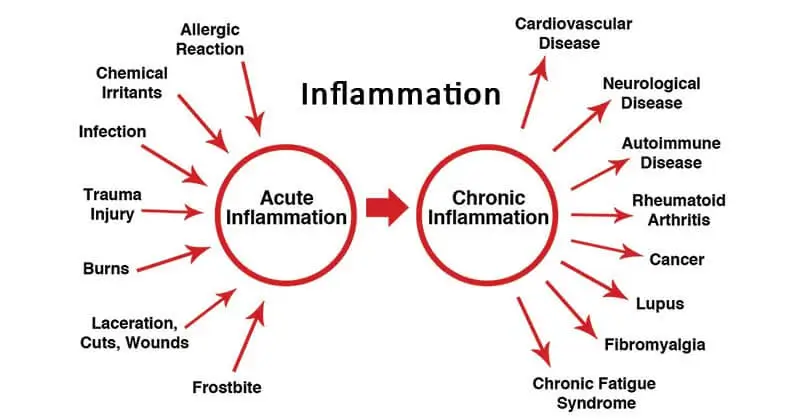
Neben seiner antioxidativen Wirkung hat E. officinalis auch entzündungshemmende Wirkungen, die dazu beitragen können, Entzündungen und Gewebeschäden zu verringern. Amla hemmt nachweislich die Produktion von entzündungsfördernden Zytokinen, wie Tumornekrosefaktor-alpha (TNF-α), Interleukin-1 beta (IL-1β) und Interleukin-6 (IL-6) (Li et al., 2020).
In dieser Studie (Singh et al., 2015) wollten die Forscher herausfinden, ob Amla als entzündungshemmendes und antioxidatives Mittel Entzündungen und oxidativen Stress reduzieren kann. Sie verwendeten Arsen, um eine Entzündung auszulösen. Arsen kann Entzündungen hervorrufen und auch die Freisetzung von Zytokinen auslösen. Dabei handelt es sich um Proteine, die zur Regulierung des Immunsystems und der Entzündung beitragen. Einige Zytokine, wie TNF-α, IL-1β und IL-6, können jedoch mehr Schaden als Nutzen anrichten, wenn sie zu hoch sind. Sie fanden heraus, dass Ratten, die Amla-Extrakt erhielten, deutlich niedrigere Werte dieser Zytokine aufwiesen als Ratten, die nur Arsen erhielten. Amla-Extrakt verringerte die Größe der Pfotenödeme bei Mäusen. Er reduzierte auch die Schmerzen und die Entzündungsmediatoren in den Pfoten der Tiere. Die Forscher vermuten, dass Amla-Extrakt ähnlich wirkt wie nichtsteroidale entzündungshemmende Medikamente, wie z. B. Diclofenac.
Thrombozytenaggregation.
Wenn Sie Diabetes haben, wissen Sie vielleicht, dass Ihre Blutplättchen eher zusammenkleben und Gerinnsel bilden. Dies kann Ihr Risiko für Herzinfarkt und Schlaganfall erhöhen. Aus diesem Grund müssen Sie möglicherweise Thrombozytenaggregationshemmer wie Clopidogrel oder Ecosprin einnehmen. Diese Medikamente können die Verklumpung der Blutplättchen verhindern und die Gefahr von Blutgerinnseln verringern.
Es gibt jedoch eine natürliche Möglichkeit, die Funktion der Blutplättchen mit einem Extrakt aus der indischen Stachelbeere zu verbessern. Amla hat etwa 60 Prozent der Potenz der blutverdünnenden Wirkung von Aspirin oder Plavix (Fatima et al., 2014). Der Grund dafür ist, dass oxidativer Stress die Funktion der Blutplättchen beeinträchtigen und sie klebriger machen kann.
In der Studie (Fatima et al., 2014) verglichen sie Amla-Extrakt (P. emblica) mit Clopidogrel (Plavix) und Ecosprin (Aspirin), zwei gängigen Thrombozytenaggregationshemmern. Sie testeten auch die Kombination von P. emblica-Extrakt mit Clopidogrel oder Ecosprin.
Sie verabreichten 10 Diabetikern verschiedene Dosen von P. emblica-Extrakt, Clopidogrel, Ecosprin oder deren Kombinationen. Sie maßen die Thrombozytenaggregation, die Blutungszeit und die Gerinnungszeit vor und nach der Behandlung. Dies geschah sowohl bei der Verabreichung einer Einzeldosis als auch bei der Verabreichung mehrerer Dosen.
Was haben sie herausgefunden? Hier sind einige der wichtigsten Ergebnisse der Studie:
- P. emblica-Extrakt, Clopidogrel, Ecosprin und ihre Kombinationen verringerten alle die Thrombozytenaggregation im Vergleich zum Ausgangswert erheblich. Das bedeutet, dass sie alle verhinderten, dass Blutplättchen zusammenkleben und Gerinnsel bilden.
- Der P. emblica-Extrakt zeigte eine stärkere thrombozytenaggregationshemmende Wirkung, wenn er in mehreren Dosen verabreicht wurde, als bei einer einmaligen Verabreichung. Dies bedeutet, dass seine Wirkung bei wiederholter Einnahme mit der Zeit zunahm.
- P. emblica-Extrakt, Clopidogrel, Ecosprin und ihre Kombinationen verlängerten die Blutungszeit und die Gerinnungszeit im Vergleich zum Ausgangswert. Das bedeutet, dass sie alle die Zeit verlängerten, die das Blut brauchte, um die Blutung oder Gerinnung zu stoppen.
- Alle Behandlungen wurden von den Patienten gut vertragen. Sie berichteten über keine ernsthaften Nebenwirkungen oder unerwünschten Wirkungen.
Die Studie legt nahe, dass P. emblica-Extrakt die Thrombozytenfunktion bei Diabetikern verbessern kann, indem er den oxidativen Stress reduziert. P. emblica-Extrakt kann als natürlicher Thrombozytenaggregationshemmer wirken, indem er die Thrombozytenaggregation verhindert und das Risiko von Blutgerinnseln verringert. Der P. emblica-Extrakt kann auch die Wirkung von Clopidogrel und Ecosprin verstärken, wenn er in Kombination verwendet wird.
Bevor Sie jedoch mit der Einnahme von P. emblica-Extrakt beginnen, sollten Sie zunächst Ihren Arzt konsultieren. Sie sollten die Einnahme der Ihnen verschriebenen Thrombozytenaggregationshemmer nicht ohne ärztlichen Rat abbrechen oder ändern. Außerdem sollten Sie bei der Einnahme von Amla oder anderen Thrombozytenaggregationshemmern auf Blutungen oder Blutergüsse achten.
Schutz von Magengeschwüren und Verdauungstrakt.
Eine der möglichen Wirkungen von Amla ist die potenzielle Hemmung von antibiotikaresistenten Helicobacter pylori Stämme in vitro. Helicobacter pylori ist eine bekannte Ursache für Magengeschwüre (Mehrotra et al., 2011) und sogar Krebs. Man könnte meinen, dass es mit der modernen Medizin einfach wäre, den Erreger loszuwerden, aber das wäre ein Irrtum. Selbst die wirksamste Kombination von Medikamenten, die so genannte "Dreifachtherapie", kann H. pylori nicht immer aus dem Darm beseitigen.
H. pylori ist sehr anpassungsfähig und kann eine Resistenz gegen Antibiotika entwickeln. Außerdem ist er je nach Wohnort sehr unterschiedlich, was sich darauf auswirkt, wie er Krankheiten verursacht und wie er auf die Behandlung anspricht. In Indien beispielsweise sind die meisten H. pylori-Stämme gegen Metronidazol, ein häufig verwendetes Antibiotikum, resistent. Viele von ihnen sind auch resistent gegen Clarithromycin und Amoxicillin, zwei weitere Medikamente, die in der "Dreifachtherapie" eingesetzt werden. Das macht die Behandlung von H. pylori in Indien sehr kompliziert und oft unwirksam. H. pylori überlebt nicht nur in Ihrem Magen, sondern schädigt ihn auch, indem es Toxine und Entzündungen produziert. Deshalb empfehlen manche Leute die Einnahme von Antioxidantien.
Aber wirkt Amla auch gegen H. pylori? Das wollten sie in dieser Studie herausfinden (Mehrotra et al., 2011).
Sie testeten den Extrakt aus Amla-Fruchtfleisch gegen verschiedene Stämme von H. pylori, die von Patienten in Kalkutta, Mumbai und Hyderabad isoliert worden waren. Diese Stämme waren gegen verschiedene Antibiotika, wie Furazolidon, Metronidazol und Clarithromycin, resistent. Sie stellten fest, dass der Amla-Extrakt gegen alle getesteten Stämme eine Anti-H. pylori-Aktivität mit minimalen Hemmkonzentrationen aufwies. Das bedeutet, dass sehr geringe Mengen des Extrakts ausreichten, um das Wachstum der Bakterien zu stoppen. Die Anti-H.-pylori-Aktivität war auf eine spezifische Verbindung im Extrakt zurückzuführen, die in der Dünnschichtchromatographie einen Retentionsfaktor von 0,16 aufwies. Diese Verbindung könnte für die antibiotische Breitspektrum-Aktivität von Amla auch gegen andere Krankheitserreger verantwortlich sein.
Sie stellten fest, dass der Extrakt seine antioxidativen Eigenschaften auch dann beibehielt, wenn er hohen Temperaturen und sauren Bedingungen ausgesetzt war. Dies deutet darauf hin, dass der Extrakt die Magenschleimhaut vor oxidativen Schäden und Entzündungen schützen könnte, die durch H. pylori verursacht werden.
Die Studie zeigt, dass der Amla-Extrakt sowohl gegen H. pylori als auch antioxidativ wirkt, was ihn zu einer potenziellen Quelle für den therapeutischen Einsatz gegen durch dieses Bakterium verursachte Magengeschwüre und Krebs machen könnte.
Ein weiterer interessanter möglicher gesundheitlicher Nutzen des Amla-Konsums wurde bei Patienten mit gastroösophagealer Refluxkrankheit festgestellt (Karkon et al., 2018). Die Patienten in der Amla-Gruppe erhielten vier Wochen lang zweimal täglich nach den Mahlzeiten zwei 500-mg-Amla-Tabletten und konnten die Schwere und Häufigkeit von Regurgitation und Sodbrennen verringern.
Schutz der Leber und Fettleberkrankheiten.
Man könnte meinen, dass nur Alkohol die Leber schädigen kann, aber das ist nicht wahr. Es gibt einen Zustand namens nichtalkoholische Fettlebererkrankung, die häufigste chronische Lebererkrankung der Welt. Sie betrifft Menschen, die unter dem metabolischen Syndrom leiden, einer Gruppe von Risikofaktoren für Herzkrankheiten und Diabetes, wie Fettleibigkeit, Bluthochdruck, hoher Blutzucker und hoher Cholesterinspiegel. Bei der nichtalkoholischen Fettlebererkrankung ist zu viel Fett in der Leber eingelagert, was zu Entzündungen, Narbenbildung und sogar Leberversagen führen kann.
Amla kann die Fettansammlung und Fibrose in den Leberzellen verringern. Gallussäure, einer der Hauptbestandteile von Amla, kann den Fettstoffwechsel und den oxidativen Stress bei Ratten verbessern, die mit einer fettreichen Diät gefüttert wurden.
In dieser Studie (Huang et al., 2017) gaben sie Ratten, die 12 Wochen lang mit einer fettreichen Diät gefüttert wurden, einen Amla-Extrakt. Sie verglich sie mit Ratten, die eine normale oder eine fettreiche Diät ohne Amla erhielten. Gemessen wurden Körpergewicht, Fettmasse, Lebergewicht, Leberenzyme, antioxidative Enzyme und fettbezogene Gene in Leber und Fettgewebe. Außerdem untersuchten sie die Histologie der Leber, um festzustellen, wie viel Fett und Fibrose sie hatten.
Amla-Extrakt reduzierte das Körpergewicht, die Fettmasse, das Lebergewicht und die Leberenzyme bei Ratten, die eine fettreiche Diät erhielten, erheblich. Er erhöhte auch die Aktivitäten der antioxidativen Enzyme in der Leber und im Fettgewebe. Er verbesserte die Steatose (Fettansammlung) in den Leberzellen.
Diese Studie zeigt, dass Amla bei der Vorbeugung und Behandlung der nichtalkoholischen Fettleber von Nutzen sein kann. Sie kann Ihnen helfen, Gewicht zu verlieren, Ihren Cholesterin- und Blutzuckerspiegel zu senken, Ihre Leber vor Schäden zu schützen und Ihr Risiko für Herzerkrankungen und Diabetes zu verringern.
Krebsprävention.
Forscher haben herausgefunden, dass Phyllanthus emblica L. die Apoptose in Krebszellen auslösen kann. Apoptose ist ein Prozess des programmierten Zelltods, der geschädigte oder abnorme Zellen aus dem Körper eliminiert. Durch die Auslösung der Apoptose kann Phyllanthus emblica L. dazu beitragen, Krebszellen zu beseitigen und ihre Ausbreitung auf andere Gewebe zu verhindern.
Aber das ist noch nicht alles. Phyllanthus emblica L. kann auch die Tumorförderung und -invasion hemmen. Tumorpromotion ist ein Stadium der Krebsentwicklung, in dem die Zellen zusätzliche Mutationen erwerben und aggressiver werden. Tumorinvasion ist ein Prozess, bei dem Krebszellen die Grenzen ihres ursprünglichen Gewebes durchbrechen und in andere Organe eindringen. Beide Prozesse sind für das Fortschreiten des Krebses und die Metastasierung von wesentlicher Bedeutung.
Wie erreicht Amla diese Wirkungen? Die Antwort liegt in seinem reichhaltigen Gehalt an Phytochemikalien. Amla enthält verschiedene sekundäre Pflanzenstoffe wie Tannine, Flavonoide, Alkaloide und Phenolsäuren, die verschiedene molekulare Wege, die an Krebs beteiligt sind, modulieren können.
So kann beispielsweise einer der sekundären Pflanzenstoffe in Amla, die Gallussäure, die Aktivität eines Enzyms namens Matrix-Metalloproteinase-9 (Kahkeshani et al., 2019). MMP-9 ist für den Abbau der extrazellulären Matrix verantwortlich, einem Netzwerk aus Proteinen und Zuckern, das die Zellen umgibt und stützt. Durch die Hemmung von MMP-9 kann Gallussäure Krebszellen daran hindern, die extrazelluläre Matrix zu durchbrechen und in andere Gewebe einzudringen.
Eine weitere Phytochemikalie in Amla, das Quercetin, kann die Expression eines Proteins namens Nuklearfaktor-Kappa B (Ruiz et al., 2007). NF-κB ist ein Transkriptionsfaktor, der die Expression von Genen reguliert, die an Entzündungen, Zellüberleben und Proliferation beteiligt sind. Durch die Unterdrückung von NF-κB kann Quercetin Entzündungen reduzieren, die ein Risikofaktor für die Krebsentwicklung sind, und die Apoptose in Krebszellen auslösen.
Dies sind nur einige Beispiele dafür, wie Amla Krebs auf verschiedenen Ebenen beeinflussen kann. Natürlich sind weitere Forschungen erforderlich, um die Sicherheit und Wirksamkeit dieser Pflanze beim Menschen zu bestätigen. Die vorliegenden Erkenntnisse deuten jedoch darauf hin, dass Phyllanthus emblica L. ein vielversprechendes natürliches Mittel zur Krebsvorbeugung und -behandlung sein könnte.
In dieser Studie (Ngamkitidechakul et al., 2010) Sie testeten Amla gegen sechs verschiedene Arten von menschlichen Krebserkrankungen. Das Ergebnis war, dass Amla das Wachstum der Krebszellen verringerte und dann, als die Konzentration erhöht wurde, das Wachstum aller sechs Krebsarten vollständig stoppte. Als die Konzentration erhöht wurde, wurde das Krebswachstum negativ und die Krebszellen begannen schließlich abzusterben.
Als das Experiment abgebrochen wurde, verringerte sich die Größe aller sechs Krebsarten um mehr als 60 Prozent. Es zerstörte den Krebs so tiefgreifend, dass es bemerkenswert war. Das Beste daran ist, dass die höchste Konzentration von Amla mehr als 60 Prozent der Krebszellen abtötete, ohne dass dies Auswirkungen auf normale Zellen hatte. In dieser Studie wurde Amla als eines der bisher stärksten Chemotherapeutika definiert, und zwar aus diesem einen Grund. Es kann das ganze Jahr über in hohen Dosen eingenommen werden, ohne dass es zu negativen Nebenwirkungen kommt. Die positiven gesundheitlichen Wirkungen sind nur Nebeneffekte von Amla.
Die beste Nahrung für hohen Cholesterinspiegel.
Cholesterin ist eine Fettart, die für den Körper lebenswichtig ist, aber zu viel davon kann schädlich sein. Vor allem, wenn es sich um LDL (Low-Density-Lipoprotein) handelt, das auch als schlechtes Cholesterin bezeichnet wird. LDL kann dazu führen, dass sich Plaque in den Arterien ablagert, die dadurch verengt werden und das Risiko für Herzkrankheiten und Schlaganfälle steigt.
Amla-Saft hat nachweislich positive Auswirkungen auf verschiedene Aspekte Ihrer Gesundheit, wie Blutzucker, Leberfunktion und Immunität. Aber einer der beeindruckendsten Vorteile von Amla-Saft ist seine Fähigkeit, Ihr Herz vor schlechtem Cholesterin zu schützen.
Amla senkt nachweislich die Werte von Cholesterin, Triglyceriden, Low-Density-Lipoprotein (LDL) und Very-Low-Density-Lipoprotein (VLDL) im Blut und erhöht gleichzeitig die Werte von High-Density-Lipoprotein (HDL) und Apolipoprotein A1. E. officinalis hat auch plättchen- und blutgerinnungshemmende Wirkungen, die die Bildung von Blutgerinnseln verhindern und die Blutzirkulation in den Gefäßen verbessern können.
Wenn wir uns echte klinische Studien am Menschen ansehen, werden wir dieselben Vorteile feststellen wie bei allen anderen Arten von starken Antioxidantien. In dieser Studie (Akhtar et al., 2011) allein die Zugabe von Amla führte zu einer signifikanten Verbesserung des Gesamtcholesterinspiegels und des Cholesterinprofils. Wie viel Bedeutung?
Eine Stachelbeere pro Tag senkt das schlechte Cholesterin und die Triglyceride innerhalb von drei Wochen um die Hälfte.
Außerdem ist die oben genannte Studie, auf die ich mich bezogen habe, eine Studie über die Wirkung von Amla bei Typ-2-Diabetes. Amla übertraf das führende Diabetesmedikament Glyburid, das als Diabeta verkauft wird. Ein Viertel Teelöffel Amla ist bei der Bekämpfung von Typ-2-Diabetes genauso wirksam wie Millionen von Dollar teure patentierte Forschungsmedikamente. Eine der Nebenwirkungen von Diabeta ist Leberversagen oder Vergiftung des Knochenmarks.
Eine von Nambiar und Shetty durchgeführte Studie (Nambiar & Shetty, 2015) untersuchten die Wirkung von Amla-Saft auf die LDL-Oxidation und -Aufnahme in Makrophagen. Die Oxidation ist ein Prozess, bei dem LDL mit freien Radikalen reagiert, wodurch es schädlicher wird und an den Arterienwänden festkleben kann. Die Aufnahme ist ein Prozess, bei dem Makrophagen, eine Art von weißen Blutkörperchen, die Infektionen bekämpfen, oxidiertes LDL aufnehmen und zu Schaumzellen die zur Plaquebildung beitragen.
Die Studie ergab, dass Amla-Saft, der Myricetin, Gallussäure und Kaempferol als wichtigste Polyphenole enthält, bemerkenswerte Auswirkungen auf beide Prozesse hat.
Amla-Saft verringerte die LDL-Oxidation um 90 %, was bedeutet, dass er verhindert, dass LDL gefährlicher wird. Amla-Saft begrenzt auch die Aufnahme von oxidiertem LDL in Makrophagen, was bedeutet, dass er die Bildung von Schaumzellen verhindert.
Diese Ergebnisse deuten darauf hin, dass Amla-Saft die Arterien vor Plaqueablagerungen schützen und das Risiko von Herzerkrankungen und Schlaganfällen senken kann.
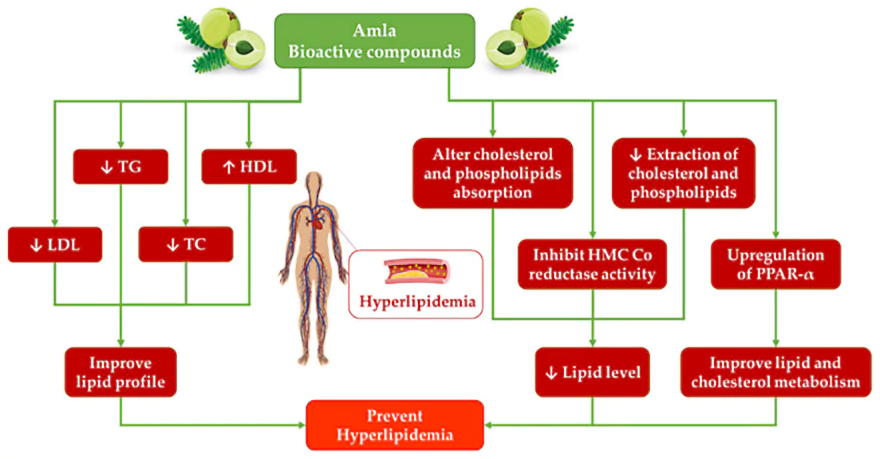
Eine Studie (Khanna et al., 2015) untersuchten die Wirkung des Amla-Extrakts auf übergewichtige und leicht fettleibige (Body-Mass-Index: 25-35) erwachsene Probanden aus der US-Bevölkerung. Die Probanden erhielten 12 Wochen lang zweimal täglich 500 mg Amla-Extrakt, und ihre Blutproben wurden zu verschiedenen Zeitpunkten entnommen, um verschiedene CVD-Risikofaktoren zu messen.
Nach einer 12-wöchigen Supplementation zeigten die Probanden eine signifikante Senkung des berechneten Verhältnisses von Low-Density-Lipoprotein und Gesamtcholesterin/High-Density-Lipoprotein (TC/HDL), zwei wichtigen Indikatoren für das CVD-Risiko. Ein niedrigeres TC/HDL-Verhältnis bedeutet ein besseres Gleichgewicht zwischen den beiden Cholesterinarten.
Aber das ist noch nicht alles. Bei den Probanden sank auch der Spiegel des hochempfindlichen reaktiven C-Proteins (hs-CRP), eines Markers für Entzündungen im Körper, deutlich. Entzündungen können die Blutgefäße schädigen und das Risiko der Plaquebildung und -ruptur erhöhen, was zu Herzinfarkten und Schlaganfällen führen kann. Ein niedriger hs-CRP-Wert bedeutet ein geringeres Maß an Entzündung.
Und das ist noch nicht alles. Die Probanden wiesen auch einen signifikanten Rückgang der Thrombozytenaggregation auf, d. h. der Verklumpung von Blutzellen, die Gerinnsel bilden und den Blutfluss blockieren können
Die Studie kam zu dem Schluss, dass eine orale Amla-Supplementierung bei übergewichtigen und leicht fettleibigen Erwachsenen durch die Senkung mehrerer globaler CVD-Risikofaktoren positive Auswirkungen haben kann. Die Studie deutet auch darauf hin, dass die Einnahme von Amla in Verbindung mit anderen Lebensstilmaßnahmen wie Ernährung und körperlicher Betätigung zu einer weiteren Verbesserung der kardiovaskulären Gesundheit führen kann.
Und das Beste daran ist, dass die Amla-Frucht für jeden geeignet ist, nicht nur für Menschen mit hohem Cholesterinspiegel. Andere Studien haben bestätigt, dass die Amla-Frucht und der Amla-Extrakt auch bei gesunden Menschen den Cholesterinspiegel und Entzündungswerte senken können.
Amla ist bei der Behandlung des Cholesterinspiegels so wirksam, dass sie sogar leistungsfähiger ist als die führenden cholesterinsenkenden Medikamente. A (Gopa et al., 2012) verglich die Wirkung von Amla, einer traditionellen indischen Frucht, mit Simvastatin, einem weit verbreiteten cholesterinsenkenden Medikament, das als Zocor bekannt ist. Es senkte den Gesamtcholesterinspiegel genauso wie Zocor um etwa 15 Prozent, aber es gibt ein Problem mit dieser Studie. Es wurden nur 500 mg Amla verwendet. Das ist ein halbes Gramm, und sie haben nicht einmal getrocknete Kraft verwendet, sondern getrocknetes Fruchtsaftpulver von Amla. Aber selbst diese Prise Amla-Saftpulver hatte die gleiche Wirkung wie ein Statin. Wenn Sie ein neues cholesterinsenkendes Medikament suchen, hier ist ein neues namens Amla, das Ihnen Ihr Kardiologe wahrscheinlich gar nicht nennen wird. Es ist nicht verschreibungspflichtig und kostet 5 Cent pro Dosis. Außerdem erhalten Sie als Nebeneffekt alle anderen Vorteile dieses Medikaments.
Die Studie (Gopa et al., 2012) wollte herausfinden, ob Amla Menschen mit Typ II helfen kann. Hyperlipidämie, dies ist ein Zustand, bei dem das Blut zu viel Cholesterin und andere Fette enthält, was das Risiko von Herzerkrankungen und Schlaganfällen erhöhen kann.
An der Studie nahmen 60 Personen mit Hyperlipidämie Typ II teil, die in zwei Gruppen aufgeteilt wurden. Eine Gruppe nahm sechs Wochen lang täglich Amla-Kapseln (500 mg) ein, während die andere Gruppe im gleichen Zeitraum täglich Simvastatin-Kapseln (20 mg) einnahm.
Die Ergebnisse zeigten, dass sowohl Amla als auch Simvastatin den Gesamtcholesterinspiegel, das LDL-Cholesterin (schlechtes Cholesterin), die Triglyceride und das VLDL (Lipoprotein sehr niedriger Dichte) im Blut wirksam senken. Beide Behandlungen erhöhen auch den Spiegel des HDL-Cholesterins (gutes Cholesterin) im Blut, das zum Schutz vor Herzerkrankungen beitragen kann, indem es überschüssiges Cholesterin aus den Blutgefäßen entfernt.
Amla hatte jedoch eine etwas bessere Wirkung als Simvastatin, sowohl was die Senkung des LDL- als auch die Erhöhung des HDL-Spiegels anbelangt.
Beide Behandlungen senkten auch den Blutdruck der Teilnehmer, was ein weiterer Vorteil für die Herzgesundheit ist. Jedoch, Amla hatte eine ausgeprägtere Wirkung als Simvastatin auf die Senkung des Blutdrucks, insbesondere des systolischen Blutdrucks (der höchste Wert), der den Druck in den Arterien misst, wenn das Herz schlägt.
Die Studie kam zu dem Schluss, dass Amla für Menschen mit Hyperlipidämie Typ II eine sichere und wirksame Alternative zu Simvastatin darstellt. Amla senkte nicht nur den Cholesterin- und Fettgehalt im Blut, sondern verbesserte auch den Blutdruck und verringerte den Bedarf an höheren Medikamentendosen. Die Studie deutet darauf hin, dass die Ergänzung der derzeitigen Behandlungsmöglichkeiten für hohe Cholesterinwerte durch Amla einen erheblichen Schutz vor Atherosklerose und koronarer Herzkrankheit bieten würde, die weltweit zu den häufigsten Todesursachen zählen.
Zahnkaries.
Zahnkaries ist eine häufige und irreversible Infektion, die im Laufe der Zeit zum Verfall der Zähne führt. Der Hauptverantwortliche für diese Infektion ist ein Bakterium namens Streptokokkus mutans, das im Mund lebt und sich von den Zuckern ernährt, die wir essen. Dieses Bakterium kann nicht nur die Zähne schädigen, sondern auch eine schwere Herzerkrankung namens infektiöse Endokarditis verursachen, die unbehandelt tödlich sein kann. Manchmal kann das Bakterium durch Schnitte oder Wunden im Mund in den Blutkreislauf gelangen und sich an das geschädigte Gewebe im Herzen heften. Dies kann zu einer Entzündung und Infektion der Herzklappen und -kammern führen.
Wie also verursacht Streptococcus mutans Karies? Er hat ein paar Tricks in petto. Erstens kann er aus dem Zucker, den er verzehrt, eine Menge Säure produzieren, die den pH-Wert in Ihrem Mund senkt und ihn saurer macht. Diese Säure kann den Zahnschmelz angreifen, also die harte Schutzschicht, die die Zähne bedeckt. Zweitens kann er aus den Zuckern, die er verzehrt, klebrige Substanzen, so genannte Glucane, herstellen, die ihm helfen, an den Zähnen zu haften und einen Biofilm zu bilden. Ein Biofilm ist eine Schicht aus Bakterien und anderen Mikroorganismen, die sie vor Ihrem Speichel und Ihrem Immunsystem schützt. Der Biofilm fängt auch mehr Nahrungspartikel und Säure ab, wodurch ein Teufelskreis von Karies entsteht.
Das fragen Sie sich vielleicht: Gibt es eine Möglichkeit, dieses Bakterium daran zu hindern, Ihre Zähne und Ihr Herz zu ruinieren? Nun, eine mögliche Lösung besteht darin, ihre Fähigkeit zur Herstellung von Glucanen zu hemmen, die für ihr Überleben und ihre Biofilmbildung unerlässlich sind. Dies haben viele Forscher versucht, indem sie verschiedene Wirkstoffe getestet haben, die die Enzyme zur Herstellung von Glucanen blockieren können. Diese Enzyme werden als Glucosyltransferasen bezeichnet.
Einer der Wirkstoffe, der vielversprechende Ergebnisse bei der Hemmung von Glucosyltransferasen gezeigt hat, ist ein Pflanzenextrakt aus Phyllanthus emblica, auch bekannt als Amla.
Aus diesem Grund hat der Wissenschaftler in dieser Studie (Hasan et al., 2012) beschlossen, zu untersuchen, wie dieser Pflanzenextrakt gegen dieses Bakterium und seine Biofilmbildung wirkt
Sie extrahierten die Wirkstoffe aus der Amla-Frucht mit Wasser und Alkohol und testeten ihre Auswirkungen auf verschiedene Aspekte des Lebenszyklus des Bakteriums.
Sie fanden heraus, dass sowohl der Wasser- als auch der Alkoholextrakt von Amla die Anhaftung von Streptococcus mutans am Zahn bei bestimmten Konzentrationen um 50 % verringerte. Bei niedrigeren Konzentrationen verringerten sie auch die Biofilmbildung um 50 %. Außerdem verringerten sie die Glucansynthese und die Klebrigkeit des Bakteriums.
Die Analyse der Genexpression zeigte, dass die Extrakte die Gene unterdrückten, die für die Biofilmbildung wichtig sind. Die mikroskopischen Bilder bestätigten, dass die Extrakte die Biofilmstruktur im Vergleich zur Kontrolle störten. Daher kamen sie zu dem Schluss, dass Fruchtextrakte aus Emblica officinalis das Potenzial haben, Karies zu verhindern, indem sie die Virulenzfaktoren von Streptococcus mutans hemmen.
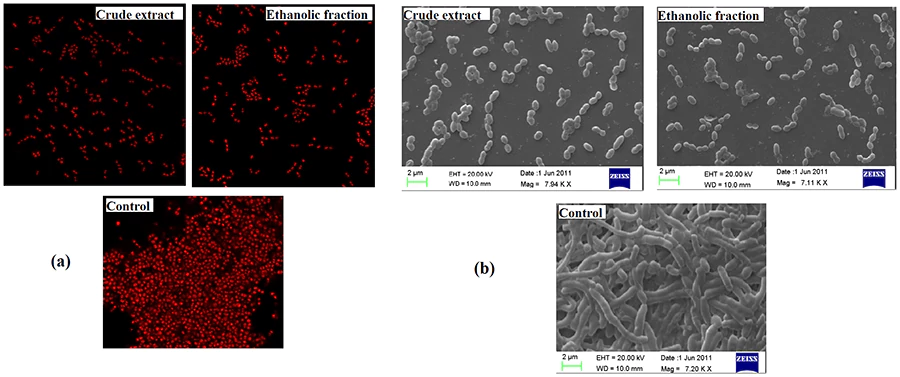
Eine Möglichkeit, wie wir diese Studie nutzen können, ist zum Beispiel die Herstellung eines eigenen Mundwassers. Chlorhexidin ist dafür bekannt, dass es DNA-Schäden verursacht. Grüner Tee hat zum Beispiel eine stärkere Wirkung auf die Unterdrückung von Streptococcus mutans als herkömmliche Chlorhexidin-Mundspülungen, die in jedem Geschäft verkauft werden (Balappanavar et al., 2013). Die Kombination von grünem Tee mit Amla-Extrakt sowie ätherischem Nelkenöl und ätherischem Öl von wildem Oregano bietet eine viel wirksamere und natürlichere ungiftige Methode zur Vorbeugung von Zahnfleischentzündungen und Zahnkaries als die Verwendung giftiger Substanzen wie Chlorhexidin.
Antidiabetische Aktivität.
Wenn Sie nach einer natürlichen Methode zur Senkung Ihres Blutzuckerspiegels suchen, sollten Sie es mit Amla versuchen. Sie hat viele gesundheitliche Vorteile, aber einer der beeindruckendsten ist ihre Fähigkeit, den Blutzuckerspiegel besser zu senken als einige der führenden Diabetes-Medikamente.
Sie fragen sich vielleicht, wie eine einfache Frucht so etwas bewirken kann. Nun, das beruht nicht nur auf anekdotischen Beweisen oder Volksglauben. Es gibt wissenschaftliche Untersuchungen, die dies belegen. In der Tat hat eine Studie (Akhtar et al., 2011) verglich die Wirkung von Amla mit Glyburid, einem gängigen Diabetesmedikament, das unter den Markennamen Diabeta oder Micronase verkauft wird. Glyburid soll den Blutzuckerspiegel senken, indem es die Bauchspeicheldrüse anregt, mehr Insulin zu produzieren.
An der Studie nahmen Menschen mit Diabetes teil, die entweder Glyburid oder eine kleine Menge getrocknetes Amla-Pulver (im Wert von weniger als zwei Beeren pro Tag) erhielten. Sie gaben den Freiwilligen 21 Tage lang 1, 2 oder 3 Gramm Amla-Pulver pro Tag und maßen ihre Blutzucker- und Lipidwerte vor und nach der Behandlung.
Amla senkte nicht nur ihren Blutzuckerspiegel besser als Glyburid, sondern senkte auch ihr schlechtes Cholesterin, erhöhte ihr gutes Cholesterin und halbierte ihre Triglyceride. Und das alles mit nur einem Bruchteil eines Teelöffels des Pulvers pro Tag.
Wie kann Amla so wirkungsvoll sein? Nun, Forscher glauben, dass sie starke antioxidative und entzündungshemmende Eigenschaften hat, die Ihre Zellen vor oxidativem Stress und Entzündungen schützen können, die zwei wichtige Faktoren bei Diabetes sind.
Amla enthält auch Verbindungen, die die Enzyme hemmen können, die Kohlenhydrate in Glukose umwandeln, wodurch die Menge an Zucker, die in den Blutkreislauf gelangt, verringert wird.
Studien deuten darauf hin, dass die Aktivität der wichtigsten Phytochemikalien in Amla (wie Ellagsäure und Ascorbinsäure) die Aktivität von Schlüsselenzymen des Glukosestoffwechsels verringert.
Diese Enzyme werden als Amylase Und Glucosidase, sie sind im Speichel und im Darm zu finden. Wenn Sie stärkehaltige oder zuckerhaltige Lebensmittel essen, beginnen diese Enzyme mit ihrer Arbeit und wandeln sie in Glukose um, die dann in den Blutkreislauf gelangt und den Blutzuckerspiegel ansteigen lässt.
Wenn Sie jedoch Amla zusammen mit Ihrer Nahrung essen, können die darin enthaltenen sekundären Pflanzenstoffe an diese Enzyme binden und ihre Aktivität hemmen. Dies bedeutet, dass weniger Glukose aus der Nahrung produziert wird und der Blutzuckerspiegel nicht so stark ansteigt. Dies kann Ihnen helfen, Ihren Diabetes zu kontrollieren und Komplikationen aufgrund eines hohen Blutzuckerspiegels zu vermeiden.
Diese Wirkung der Phytochemikalien von Amla auf die Enzyme, die Zucker verdauen, wurde in einer Laborstudie nachgewiesen (Nampoothiri et al., 2011). Die Forscher testeten die Aktivität von Amylase und Glucosidase in Gegenwart verschiedener Konzentrationen von Ellagsäure und Ascorbinsäure, die aus Amla gewonnen wurden. Sie stellten fest, dass beide Phytochemikalien die Aktivität beider Enzyme dosisabhängig verringerten. Dies bedeutet, dass die Aktivität der Enzyme umso geringer ist, je höher die Konzentration der Phytochemikalien ist.
Die Forscher kamen zu dem Schluss, dass die sekundären Pflanzenstoffe von Amla als natürliche Hemmstoffe der Zuckerverdauung wirken können, und schlugen vor, dass sie als Nahrungsergänzungsmittel zur Behandlung von Diabetes eingesetzt werden könnten. Natürlich war dies nur eine In-vitro-Studie, d. h. sie wurde im Reagenzglas und nicht an lebenden Organismen durchgeführt.
Aber was ist mit den Nebenwirkungen? Die einzige Nebenwirkung von Amla ist, dass sie sauer schmeckt. Das war's. Keine Gewichtszunahme, keine Übelkeit, kein Hautausschlag, keine Leberschädigung, keine Knochenmarkssuppression. Das sind nur einige der möglichen Nebenwirkungen von Glyburid. Und im Gegensatz zu Glyburid, das zu Hypoglykämie (Unterzuckerung) führen kann, wenn man zu viel davon nimmt oder eine Mahlzeit auslässt, besteht bei Amla dieses Risiko nicht.
Heißt das, dass Sie Ihre Diabetesmedikamente weglassen und stattdessen Amla essen sollten? Nein, nicht unbedingt. Wenn Sie bereits Diabetes haben und Medikamente einnehmen, ist es unwahrscheinlich, dass Sie sofort geheilt werden. Sie sollten immer Ihren Arzt konsultieren, bevor Sie Änderungen an Ihrem Behandlungsplan vornehmen. Aber vielleicht möchten Sie Ihren Arzt fragen, ob Sie Amla als ergänzende Therapie in Ihre Ernährung aufnehmen können. Oder noch besser: Warum versuchen Sie nicht, Ihren Diabetes mit einer Diät umzukehren? Beide gesättigte Fettsäuren Und Eiweiß wurden mit Diabetes Typ 2 in Verbindung gebracht. Eine pflanzliche Ernährung kann den Blutzuckerspiegel senken, die Insulinempfindlichkeit verbessern und das Risiko von Diabetes-Komplikationen verringern.
Nährstoffzusammensetzung von Amla.
| Sorte | Luftfeuchtigkeit | Kohlenhydrate | Faser | Mineralien | Eiweiß | Fett | Vitamin C |
| Lokale Sorte (ohne Namen) | 81 g/100 g | 14 g/100 g | 3,2 g/100 g | 0,3 g/100 g | 1 g/100 g | 0,5 g/100 g | 720 mg/100 g |
| Lokale Sorte (ohne Namen) | 82.8 g/100 g | 7.6 g/100 g | 5,1 g/100 g | 2.3 g/100 g | 2,0 g/100 g | 0,3 g/100 g | 573 mg/100 g |
| NA-7 NA 9 NA-10 Balwant Chakaiya Hathijhool | 84.9–87.5 g/100 g | 77.2–81.9 g/100 g DW | 11.7–16,0 g/100 g DW | 2.1–3.0 g/100 g DW | 3.0–4.5 g/100 g DW | 0,2–0,5 g/100 g DW | 489.9–585.0 mg/100 g |
| NA-7, Banarasi, Kanchan, Chakaiya und Desi | 81.3–84.6 g/100 g | 73.8–87.1 g/100 g DW | 7.2–22.4 g/100 g DW | 2.2 bis 3.1 g/100 g DW | 2,0 bis 3,2 g/100 g DW | 0.4–0.5 g/100 g DW | 193-315 mg/100 g |
| Krishna Kanchan, NA-7, Chakaiya | 85.6–87.7 g/100 g | 70.7–73.8 g/100 g DW | 13.9–16,5 g/100 g DW | 2.3–2.8 g/100 g DW | 2.9–3.6 g/100 g DW | 0.5–0.6 g/100 g DW | 421-506 mg/100 g |
Wenn Sie 100 g frische Amla-Früchte (etwa 2 oder 3 Stück) von einer der in der Tabelle aufgeführten Sorten essen, können Sie Ihren Tagesbedarf an Vitamin C decken. Sie enthält mehr Vitamin C als viele andere Früchte, wie Äpfel, Limetten, Granatäpfel und einige Trauben. Amla enthält auch andere gesundheitsfördernde Vitamine und Mineralstoffe wie die Vitamine A, B1 und E (290 IU, 30 mg/100 g und 0,17 mg/100 g) sowie Kalzium und Eisen (25 und 1 mg/100 g).
| Nährstoff | Amount | % der RDA |
| Vitamin C | 600 mg | 1000% |
| Vitamin A | 290 IU | 6% |
| Thiamin | 0,03 mg | 3% |
| Riboflavin | 0.02 mg | 2% |
| Niacin | 0,3 mg | 2% |
| Vitamin B6 | 0,1 mg | 5% |
| Folat | 6 mcg | 2% |
| Pantothensäure | 0,3 mg | 6% |
| Kalzium | 50 mg (25-42 mg) | 5% |
| Eisen | 1.2 mg (0,9-1,2 mg) | 15% |
| Magnesium | 10 mg (10-13 mg) | 3% |
| Phosphor | 20 mg (21-25 mg) | 3% |
| Kalium | 198 mg (151-198 mg) | 6% |
Die Angaben in den Tabellen beziehen sich auf frische Früchte. Wenn Sie nicht in Indien leben, werden Sie höchstwahrscheinlich nur Trockenfruchtpulver oder Amla-Saft finden können. In den meisten Fällen ist der Nährwert von Amla nicht der Grund, warum die meisten Menschen sie konsumieren. Es ist die antioxidative Kraft von Amla und ihre Auswirkungen auf die Gesundheit. Das ist der Grund, warum diese Frucht in der ayurvedischen Tradition als eines der am häufigsten verwendeten Heilmittel gilt.
Amla-Nebenwirkungen.
Amla, die indische Stachelbeere, ist eine Frucht, die viele gesundheitliche Vorteile hat, insbesondere für Menschen mit Diabetes und hohem Cholesterinspiegel. Wie jedes natürliche Heilmittel kann sie jedoch auch einige Nebenwirkungen haben, die Sie beachten sollten. Hier sind einige der möglichen Nebenwirkungen von Amla:
- Amla ist reich an Oxalaten, die bei anfälligen Personen zur Bildung von Nierensteinen beitragen können. 100 Gramm frische Amla-Früchte enthalten etwa 290 Milligramm Oxalsäure. Dies ist vergleichbar mit der Menge an Oxalsäure in 100 Gramm rohem Spinat (281 Milligramm). Wenn Sie eine Vorgeschichte mit Nierensteinen haben, sollten Sie den Verzehr von Amla einschränken. Der in Thailand hergestellte Saft der indischen Stachelbeere enthielt 1160 bzw. 1162 mg Oxalat/100 ml Saft an löslichem bzw. Gesamt-Oxalat (Vanhanen et al., 2011)
- Amla ist sehr sauer und säurehaltig, was dazu führen kann, dass Mundgeschwüre, Karies oder saurer Reflux wenn Sie zu viel davon zu sich nehmen oder es auf leeren Magen essen. Um dies zu vermeiden, sollten Sie die Aufnahme von Amla auf höchstens 10 Gramm pro Tag beschränken und sie immer mit etwas Essen oder Wasser zu sich nehmen. Außerdem sollten Sie Ihren Mund nach dem Verzehr von Amla mit Wasser ausspülen, um Ihre Zähne und Ihr Zahnfleisch zu schützen.
- Amla ist reich an Vitamin C, das im Allgemeinen gut für das Immunsystem und die Gesundheit der Haut ist. Ein Zuviel an Vitamin C kann jedoch auch zu Durchfall, Übelkeit, Kopfschmerzen oder Unterleibskrämpfe.
- Amla kann Wechselwirkungen mit einigen Medikamenten haben, insbesondere mit solchen, die den Blutzucker- oder Blutdruckspiegel beeinflussen. Amla kann den Blutzucker- und Blutdruckspiegel senken, was für manche Menschen vorteilhaft, für andere aber schädlich sein kann
- Amla kann auch mit einigen Bluttests interferieren, z. B. mit denen, die Glukose, Cholesterin oder Leberenzyme messen. Es kann die Ergebnisse dieser Tests verändern und sie ungenau machen.
- Amla kann zu einer allergische Reaktion bei manchen Menschen, die empfindlich darauf reagieren. Zu den Symptomen einer allergischen Reaktion können Hautausschlag, Juckreiz, Schwellungen, Atembeschwerden oder Anaphylaxie gehören.
Amla ist ein natürliches und wirksames Heilmittel für viele Gesundheitszustände, aber es ist nicht ohne Risiken. Sie sollten es immer mit Vorsicht und in Maßen verwenden und Ihren Arzt konsultieren, bevor Sie es einnehmen, wenn Sie irgendwelche Krankheiten haben oder Medikamente einnehmen. Amla kann eine großartige Ergänzung zu Ihrer Ernährung sein, aber nur, wenn Sie es mit Bedacht und sicher verwenden.
Häufig Gestellte Fragen
Verweise:
- Gul, M., Liu, Z. W., Iahtisham-Ul-Haq, Rabail, R., Faheem, F., Walayat, N., Nawaz, A., Shabbir, M. A., Munekata, S. E. S., Lorenzo, J. M., & Aadil, R. M. (2022). Funktionelle und Medizinische Bedeutung von Amla (Phyllanthus emblica L.): A Review. Antioxidantien (Basel, Schweiz), 11(5), 816. https://doi.org/10.3390/antiox11050816
- Singh, M. K., Yadav, S. S., Gupta, V., & Khattri, S. (2013). Immunmodulatorische Rolle von Emblica officinalis in Arsen-induzierten oxidativen Schäden und Apoptose in thymozyten von Mäusen. BMC complementary and alternative medicine, 13, 193. https://doi.org/10.1186/1472-6882-13-193
- Reddy, V. D., Padmavathi, P. Paramahamsa, M., & Varadacharyulu, N. C. (2010). Verbesserung der Alkohol-induzierten oxidativen stress, der durch Emblica officinalis (amla) in Ratten. Indian journal of biochemistry & biophysics, 47(1), 20-25.
- Biswas, T. K., Chakrabarti, S., Pandit, S., Jana U., & Dey, S. K. (2014). Pilot-Studie, die die Verwendung von Emblica officinalis standardisierten Fruchtextrakt in der Herz-und Atemmuskulatur Verbesserung und antioxidative status der Probanden mit dem Rauchen Geschichte. Journal of Herbal Medicine, 4(4), 188-194. https://doi.org/10.1016/j.hermed.2014.09.002
- Usharani, P., Merugu, P. L., & Nutalapati, C. (2019). Evaluation der Auswirkungen eines standardisierten wässrigen Extrakt von Phyllanthus emblica Früchte auf die endotheliale Dysfunktion, oxidativer stress, systemische Entzündung und Lipidprofil bei Patienten mit metabolischem Syndrom: eine randomisierte, Doppel-blinde, placebo-kontrollierte klinische Studie. BMC complementary and alternative medicine, 19(1), 97. https://doi.org/10.1186/s12906-019-2509-5
- Pathak, P., Prasad, B. R., Murthy, N. A., & Hegde, S. N. (2011). Die Wirkung von Emblica officinalis-Diät auf die Lebenserwartung, sexuelles Verhalten und fitness-Zeichen in Drosophila melanogaster. Ayu, 32(2), 279-284. https://doi.org/10.4103/0974-8520.92544
- Li, W., Zhang, X., Chen, R., Li, Y., Miao, J., Liu, G., Lan, Y., Chen, Y., & Cao, Y. (2020). HPLC-fingerprint-Analyse von Phyllanthus emblica, ethanol-Extrakt und Ihrer antioxidativen und entzündungshemmenden Eigenschaften. Journal of ethnopharmacology, 254, 112740. https://doi.org/10.1016/j.jep.2020.112740
- Singh, M. K., Yadav, S. S., Yadav, R. S., Chauhan, A., Katiyar, D., & Khattri, S. (2015). Schützende Wirkung von Emblica-officinalis Arsen induzierte biochemische Veränderung und Entzündung bei Mäusen. SpringerPlus, 4, 438. https://doi.org/10.1186/s40064-015-1227-9
- Fatima, N., Pingali, U., & Muralidhar, N. (2014). Studium der pharmakodynamischen Interaktion von Phyllanthus emblica Extrakt mit clopidogrel und ecosprin bei Patienten mit Typ-II-diabetes mellitus. Phytomedicine : international journal of phytotherapy and phytopharmacology, 21(5), 579-585. https://doi.org/10.1016/j.phymed.2013.10.024
- Mehrotra S., Jamwal R., Shyam R., Meena D.K., Mishra K., Patra R., De R., Mukhopadhyay A., Kumar A., Nandi S.P. (201 1)Anti-Helicobacter pylori and antioxidant properties of Emblica officinalis pulp extract: A potential source for therapeutic use against gastric ulcer. J. Med. Plants Res. 2011;5:2577-2583. [Google Scholar]
- Karkon Varnosfaderani, S., Hashem-Dabaghian, F., Amin, G., Bozorgi, M., Heydarirad, G., Nazem, E., Nasiri Toosi, M., & Mosavat, S. H. (2018). Wirksamkeit und Sicherheit von Amla (Phyllanthus emblica L.) in non-erosive reflux disease: a double-blind, randomized, placebo-controlled clinical trial. Journal of integrative medicine, 16(2), 126-131. https://doi.org/10.1016/j.joim.2018.02.008
- Huang, C. Z., Tung, Y. T., Hsia, S. M., Wu, C. H., & Yen, G. C. (2017). Die hepatoprotektive Wirkung von Phyllanthus emblica L. Frucht, die auf fettreiche Ernährung-induzierte nicht-alkoholische Fettleber (Nash), die in SD-Ratten. Food & function, 8(2), 842-850. https://doi.org/10.1039/c6fo01585a
- Nambiar, S. S., & Shetty, N. P. (2015). Phytochemical Profiling und Beurteilung von Low-Density-Lipoprotein-Oxidation, Schaum-Zelle-die Verhinderung der Fähigkeit und der Antioxidativen Aktivität von Kommerziellen Produkten ofEmblica officinalisFruit. Journal of Food Biochemistry, 39(3), 218-229. https://doi.org/10.1111/jfbc.12122
- Khanna, S., Das, A., Spieldenner, J., Rink, C., & Roy, S. (2015). Die Ergänzung von einem standardisierten Extrakt aus Phyllanthus emblica, verbessert die Herz-Kreislauf-Risikofaktoren und die Thrombozyten-aggregation bei übergewichtigen/Klasse 1 adipösen Erwachsenen. Journal of medicinal food, 18(4), 415-420. https://doi.org/10.1089/jmf.2014.0178
- Gopa, B., Bhatt, J., & Hemavathi, K. G. (2012). Eine vergleichende klinische Studie mit hypolipidämische Wirksamkeit von Amla (Emblica officinalis) mit 3-hydroxy-3-Methyl-Coenzym-A-Reduktase-Hemmer simvastatin. Indian journal of pharmacology, 44(2), 238-242. https://doi.org/10.4103/0253-7613.93857
- , M. S., Ramzan, A., Ali, A., & Ahmed, M. (2011). Wirkung von Amla-Frucht (Emblica officinalis, Gaertn.) auf Blutzucker-und lipid-Profil von normalen Probanden und Typ-2-Diabetes-Patienten. International journal of food sciences and nutrition, 62(6), 609-616. https://doi.org/10.3109/09637486.2011.560565
- Kahkeshani, N., Farzaei, F. Fotouhi, M., Alavi, S. S., Bahramsoltani, R., Naseri, R., Momtaz, S., Abbasabadi, Z. Rahimi, R., Farzaei, M. H., & Bishayee, A. (2019). Pharmakologische Wirkung der Gallussäure in Gesundheit und Krankheit: A mechanistic review. Iranian journal of basic medical sciences, 22(3), 225-237. https://doi.org/10.22038/ijbms.2019.32806.7897
- Ngamkitidechakul, C., Jaijoy, K., Hansakul, P., Soonthornchareonnon, N., & Sireeratawong, S. (2010). Antitumor effects of Phyllanthus emblica L.: Induktion von Krebs-Zell-Apoptose und die Hemmung der in-vivo-Tumor-promotion und die in-vitro-invasion von menschlichen Krebszellen. Phytotherapy research : PTR, 24(9), 1405-1413. https://doi.org/10.1002/ptr.3127
- Ruiz, P. A., Braune, A., Hölzlwimmer, G., Quintanilla-Fend, L., & Haller, D. (2007). Quercetin hemmt die TNF-induzierte NF-kappaB transcription factor recruitment to proinflammatorischen gene Promoter in murine intestinal epithelial cells. Journal of nutrition, 137(5), 1208-1215. https://doi.org/10.1093/jn/137.5.1208
- Hasan, S., Danishuddin, M., Adil, M., Singh, K., Verma, P. K., & Khan, A. U. (2012). Wirksamkeit von E. officinalis auf die kariogenen Eigenschaften von Streptococcus mutans: eine neuartige und alternative Ansatz zu unterdrücken quorum-sensing-Mechanismus. PloS one, 7(7), e40319. https://doi.org/10.1371/journal.pone.0040319
- Balappanavar, A. Y., Sardana, V., & Singh, M. (2013). Vergleich der Wirksamkeit von 0,5% Kaffee, 2% neem-und 0,2% Chlorhexidin-Mundspülungen on oral health: a randomized control trial. Indian journal of dental research : official publication of Indian Society for Dental Research, 24(1), 26-34. https://doi.org/10.4103/0970-9290.114933
- Nampoothiri, S. V., Prathapan, A., Cherian, O. L., Raghu, K. G., Venugopalan, V. V., & Sundaresan, A. (2011). In vitro eine antioxidative und hemmende potential von Terminalia bellerica und Emblica officinalis, Früchten gegen LDL-oxidation und wichtige Enzyme linked Typ-2-diabetes. Food and chemical toxicology : an international journal published for the British Industrial Biological Research Association, 49(1), 125-131, language: German. https://doi.org/10.1016/j.fct.2010.10.006
Zusammenhängende Posts
Haben Sie Fragen zum Thema Ernährung und Gesundheit?
Ich würde gerne von Ihnen hören und sie in meinem nächsten Beitrag beantworten. Ich freue mich über Ihren Beitrag und Ihre Meinung und freue mich darauf, bald von Ihnen zu hören. Ich lade Sie auch dazu ein Folgen Sie uns auf Facebook, Instagram und Pinterest für weitere Inhalte zu Ernährung und Gesundheit. Sie können dort einen Kommentar hinterlassen und sich mit anderen Gesundheitsbegeisterten austauschen, Ihre Tipps und Erfahrungen teilen und Unterstützung und Ermutigung von unserem Team und unserer Community erhalten.
Ich hoffe, dass dieser Beitrag für Sie informativ und unterhaltsam war und dass Sie bereit sind, die gewonnenen Erkenntnisse anzuwenden. Wenn Sie diesen Beitrag hilfreich fanden, dann es teilen mit Ihren Freunden und Familienangehörigen, die ebenfalls davon profitieren könnten. Man weiß nie, wer auf seinem Weg zur Gesundheit vielleicht etwas Anleitung und Unterstützung braucht.
– Das könnte Ihnen auch gefallen –

Über Ernährung Lernen
Milos Pokimica ist Doktor der Naturheilkunde, klinischer Ernährungsberater, Autor für medizinische Gesundheit und Ernährung sowie Berater für Ernährungswissenschaften. Autor der Buchreihe Zum Veganer werden? Rückblick auf die Wissenschafter betreibt auch das Natürliche Gesundheit website GoVeganWay.com
Medizinischer Haftungsausschluss
GoVeganWay.com bietet Ihnen Rezensionen der neuesten Ernährungs- und Gesundheitsforschung. Die bereitgestellten Informationen stellen die persönliche Meinung des Autors dar und sind weder als Ersatz für professionelle medizinische Beratung, Diagnose oder Behandlung gedacht noch impliziert. Die bereitgestellten Informationen dienen ausschließlich Informationszwecken und sollen nicht als Ersatz für die Beratung, Diagnose und/oder medizinische Behandlung durch einen qualifizierten Arzt oder Gesundheitsdienstleister dienen.Ignorieren Sie niemals professionellen medizinischen Rat oder verzögern Sie die Suche nach medizinischer Behandlung, weil Sie etwas auf GoVeganWay.com gelesen oder über GoVeganWay.com darauf zugegriffen haben
Nehmen Sie NIEMALS Änderungen im Lebensstil oder irgendwelche Änderungen vor, die eine Folge von etwas sind, das Sie auf GoVeganWay.com gelesen haben, bevor Sie einen zugelassenen Arzt konsultieren.
Bei einem medizinischen Notfall rufen Sie sofort einen Arzt oder die Notrufnummer 911 an. GoVeganWay.com empfiehlt oder unterstützt keine bestimmten Gruppen, Organisationen, Tests, Ärzte, Produkte, Verfahren, Meinungen oder andere Informationen, die darin erwähnt werden könnten.
Herausgeber-Tipps –
Milos Pokimica ist Autor für Gesundheit und Ernährung sowie Berater für Ernährungswissenschaften. Er ist Autor einer Buchreihe. Zum Veganer werden? Rückblick auf die Wissenschafter betreibt auch das Natürliche Gesundheit website GoVeganWay.com
Neueste Artikel –
Top-Gesundheitsnachrichten – ScienceDaily
- The overlooked nutrition risk of Ozempic and Wegovyam Februar 4, 2026
Popular weight-loss drugs like Ozempic and Wegovy can dramatically curb appetite, but experts warn many users are flying blind when it comes to nutrition. New research suggests people taking these medications may not be getting enough guidance on protein, vitamins, and overall diet quality, increasing the risk of muscle loss and nutrient deficiencies.
- A 25-year study found an unexpected link between cheese and dementiaam Februar 4, 2026
A massive Swedish study tracking nearly 28,000 people for 25 years found an unexpected link between full-fat dairy and brain health. Among adults without a genetic risk for Alzheimer’s, eating more full-fat cheese was associated with a noticeably lower risk of developing the disease, while higher cream intake was tied to reduced dementia risk overall. The findings challenge decades of low-fat dietary advice but come with important caveats.
- MIT’s new brain tool could finally explain consciousnessam Februar 4, 2026
Scientists still don’t know how the brain turns physical activity into thoughts, feelings, and awareness—but a powerful new tool may help crack the mystery. Researchers at MIT are exploring transcranial focused ultrasound, a noninvasive technology that can precisely stimulate deep regions of the brain that were previously off-limits. In a new “roadmap” paper, they explain how this method could finally let scientists test cause-and-effect in consciousness research, not just observe […]
- Why heart disease risk in type 2 diabetes looks different for men and womenam Februar 4, 2026
Scientists are digging into why heart disease risk in type 2 diabetes differs between men and women—and sex hormones may be part of the story. In a large Johns Hopkins study, men with higher testosterone had lower heart disease risk, while rising estradiol levels were linked to higher risk. These hormone effects were not seen in women. The results point toward more personalized approaches to heart disease prevention in diabetes.
- Sound machines might be making your sleep worseam Februar 4, 2026
Sound machines may not be the sleep saviors many believe. Researchers found that pink noise significantly reduced REM sleep, while simple earplugs did a better job protecting deep, restorative sleep from traffic noise. When pink noise was combined with outside noise, sleep quality dropped even further. The results suggest that popular “sleep sounds” could be doing more harm than good—particularly for kids.
- This unexpected plant discovery could change how drugs are madeam Februar 3, 2026
Plants make chemical weapons to protect themselves, and many of these compounds have become vital to human medicine. Researchers found that one powerful plant chemical is produced using a gene that looks surprisingly bacterial. This suggests plants reuse microbial tools to invent new chemistry. The insight could help scientists discover new drugs and produce them more sustainably.
- A hidden cellular process may drive aging and diseaseam Februar 3, 2026
As we age, our cells don’t just wear down—they reorganize. Researchers found that cells actively remodel a key structure called the endoplasmic reticulum, reducing protein-producing regions while preserving fat-related ones. This process, driven by ER-phagy, is tied to lifespan and healthy aging. Because these changes happen early, they could help trigger later disease—or offer a chance to stop it.
PubMed, #Vegane Diät –
- Diet type and the oral microbiomeam Februar 2, 2026
CONCLUSION: The diet-oral microbiome-systemic inflammation axis is bidirectional and clinically relevant. Understanding both direct ecological regulation and indirect metabolic effects is essential to support precision nutrition strategies aimed at maintaining oral microbial balance and systemic inflammatory risk mitigation.
- Consensus document on healthy lifestylesam Januar 22, 2026
Proteins are a group of macronutrients that are vital to our lives, as they perform various functions, including structural, defensive and catalytic. An intake of 1.0-1.2 g/kg/body weight per day would be sufficient to meet our needs. Carbohydrate requirements constitute 50 % of the total caloric value and should be obtained mainly in the form of complex carbohydrates. In addition, a daily intake of both soluble and insoluble fiber is necessary. Regular consumption of extra virgin olive oil […]
- Vitamin B12 and D status in long-term vegetarians: Impact of diet duration and subtypes in Beijing, Chinaam Januar 21, 2026
CONCLUSIONS: This study reveals a dual challenge among Beijing long-term vegetarians: vitamin B12 deficiency was strongly associated with the degree of exclusion of animal products from the diet (veganism), while vitamin D deficiency was highly prevalent and worsened with longer diet duration. The near-universal vitamin D deficiency observed in this study suggests that, in the Beijing context, the risk may extend beyond dietary choice, potentially reflecting regional environmental factors;…
- Nutritional evaluation of duty meals provided to riot police forces in Germanyam Januar 13, 2026
Background: The primary role of the German riot police is maintaining internal security. Due to challenging working conditions, riot police forces face an elevated risk of various diseases. During duty, forces are provided with meals. A balanced diet can reduce the risk of some of these diseases and contribute to health-promoting working conditions. Aim: First evaluation of the nutritional quality of duty meals in Germany based on German Nutrition Society recommendations (DGE). Methods: In…
- Iodineam Januar 1, 2006
Iodine is an essential trace nutrient for all infants that is a normal component of breastmilk. Infant requirements are estimated to be 15 mcg/kg daily in full-term infants and 30 mcg/kg daily in preterm infants.[1] Breastmilk iodine concentration correlates well with maternal urinary iodine concentration and may be a useful index of iodine sufficiency in infants under 2 years of age, but there is no clear agreement on a value that indicates iodine sufficiency, and may not correlate with […]
Zufällige Beiträge –
Beliebte Beiträge -
Neuestes von PubMed, #pflanzliche Ernährung –
- From paddy soil to dining table: biological biofortification of rice with zincvon Lei Huang am Februar 4, 2026
One-third of paddy soils are globally deficient in zinc (Zn) and 40% of Zn loss in the procession from brown rice to polished rice, which results in the global issue of hidden hunger, e.g., the micronutrient deficiencies in the rice-based population of developing countries. In the recent decades, biofortification of cereal food crops with Zn has emerged as a promising solution. Herein, we comprehensively reviewed the entire process of Zn in paddy soil to human diet, including the regulatory…
- Molecular Characterization of Tobacco Necrosis Virus A Variants Identified in Sugarbeet Rootsvon Alyssa Flobinus am Februar 3, 2026
Sugarbeet provides an important source of sucrose; a stable, environmentally safe, and low-cost staple in the human diet. Viral diseases arising in sugarbeet ultimately impact sugar content, which translates to financial losses for growers. To manage diseases and prevent such losses from occurring, it is essential to characterize viruses responsible for disease. Recently, our laboratory identified a tobacco necrosis virus A variant named Beta vulgaris alphanecrovirus 1 (BvANV-1) in sugarbeet…
- Nutrition in early life interacts with genetic risk to influence preadult behaviour in the Raine Studyvon Lars Meinertz Byg am Februar 3, 2026
CONCLUSIONS: Nutrition in early life and psychiatric genetic risk may interact to determine lasting child behaviour. Contrary to our hypothesis, we find dietary benefits in individuals with lower ADHD PGS, necessitating replication. We also highlight the possibility of including genetics in early nutrition intervention trials for causal inference.
- Effect of the gut microbiota on insect reproduction: mechanisms and biotechnological prospectsvon Dilawar Abbas am Februar 2, 2026
The insect gut microbiota functions as a multifunctional symbiotic system that plays a central role in host reproduction. Through the production of bioactive metabolites, gut microbes interact with host hormonal pathways, immune signaling, and molecular regulatory networks, thereby shaping reproductive physiology and fitness. This review summarizes recent advances in understanding how gut microbiota regulate insect reproduction. Accumulating evidence demonstrates that microbial metabolites…
- Rationale and design of a parallel randomised trial of a plant-based intensive lifestyle intervention for diabetes remission: The REmission of diabetes using a PlAnt-based weight loss InteRvention…von Brighid McKay am Februar 2, 2026
CONCLUSIONS: This trial will provide high-quality clinical evidence on the use of plant-based ILIs to address the epidemics of obesity and diabetes to inform public health policies and programs in Canada and beyond.
- Diet type and the oral microbiomevon Daniel Betancur am Februar 2, 2026
CONCLUSION: The diet-oral microbiome-systemic inflammation axis is bidirectional and clinically relevant. Understanding both direct ecological regulation and indirect metabolic effects is essential to support precision nutrition strategies aimed at maintaining oral microbial balance and systemic inflammatory risk mitigation.

